









CONFLICT OF INTEREST
Marking the end of WWII
THE LEGEND CRACK’D
David Suchet discovers the real Agatha Christie
EASTERN PROMISE
Southeast Asia is on the rise











Marking the end of WWII
David Suchet discovers the real Agatha Christie
Southeast Asia is on the rise
BY ULI EDEL
BY

AFTER THE PHENOMENAL SUCCESS OF THE FIRST

RETURNS WITH EVEN MORE GRIPPING DRAMA – AND A LOT OF FUN




BY KAREN JEYNES AND THIERRY CASSUTO
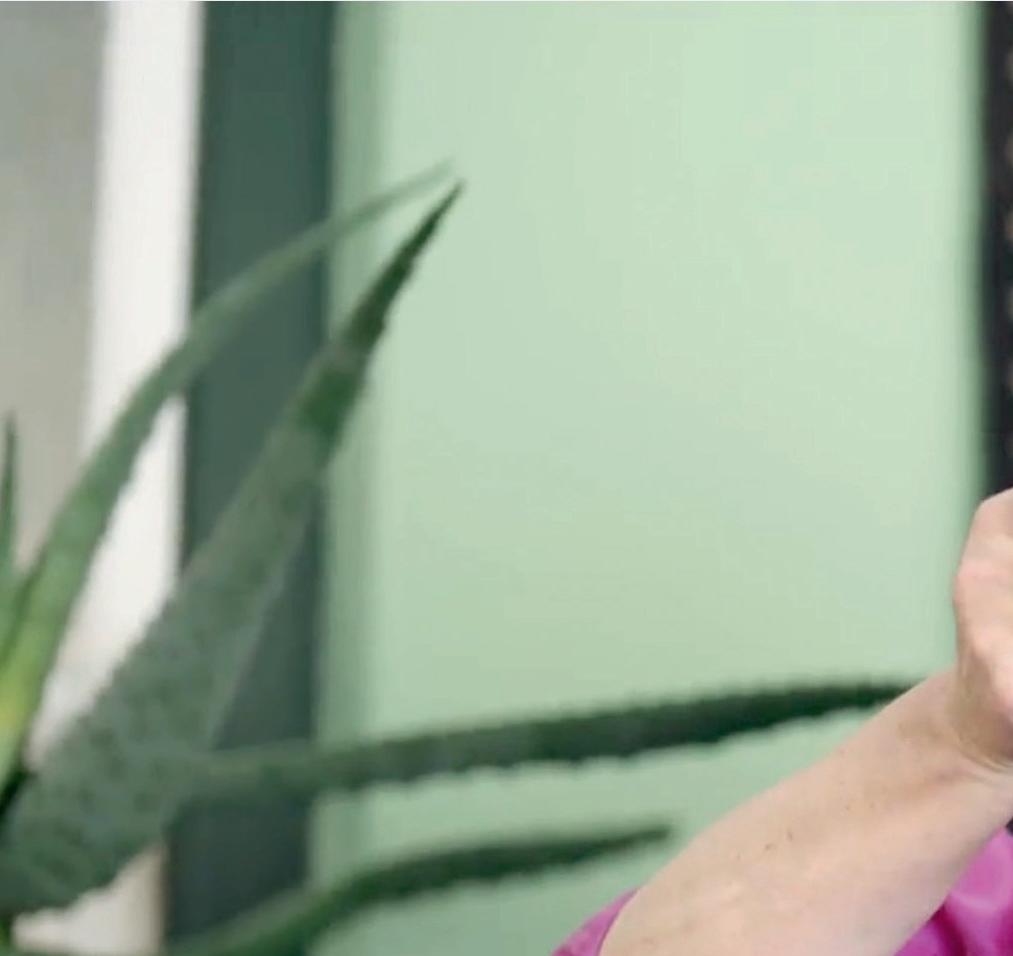
BASED ON A TRUE STORY, THIS GRIPPING INTERNATIONAL CRIME THRILLER SPANS CONTINENTS, FROM THE REMOTE HEIGHTS OF THE INCA TRAIL TO THE BUSTLING STREETS OF MUNICH AND NEW YORK



THE SECOND SEASON IS NOW AVAILABLE




CO-EDITORS-IN-CHIEF
Nellie Andreeva (Television)
Mike Fleming Jr. (Film)
PRINT EDITORIAL
SENIOR AWARDS EDITOR Antonia Blyth
DESIGN DIRECTOR Fah Sakharet
FILM EDITOR Damon Wise
DOCUMENTARY EDITOR Matthew Carey
CRAFTS EDITOR Ryan Fleming
PRODUCTION EDITOR David Morgan
AWARDS WRITER Destiny Jackson
DEADLINE.COM EDITORIAL
AWARDS COLUMNIST & CHIEF FILM CRITIC Pete Hammond
COLUMNIST & INTERNATIONAL EDITOR-AT-LARGE Baz Bamigboye
EXECUTIVE MANAGING EDITOR Patrick Hipes
EDITORIAL DIRECTOR & BOX OFFICE EDITOR Anthony D’Alessandro
EXECUTIVE EDITOR, TELEVISION Peter White
EXECUTIVE EDITOR, LEGAL, LABOR & POLITICS Dominic Patten
EXECUTIVE EDITOR, INTERNATIONAL & STRATEGY Andreas Wiseman
SENIOR MANAGING EDITOR Denise Petski
MANAGING EDITOR Erik Pedersen
DEPUTY MANAGING EDITOR Tom Tapp
PHOTO EDITOR Robert Lang
EDITOR-AT-LARGE Peter Bart
SENIOR VICE PRESIDENT, CONTENT, INTERNATIONAL Stewart Clarke
INTERNATIONAL FEATURES EDITOR Diana Lodderhose
BUSINESS EDITOR Dade Hayes
CO-BUSINESS EDITOR Jill Goldsmith
POLITICAL EDITOR Ted Johnson
FILM EDITOR Justin Kroll
NEW YORK & BROADWAY EDITOR Greg Evans
ASSOCIATE EDITOR, TELEVISION Rosy Cordero
SENIOR TELEVISION WRITER Lynette Rice
TELEVISION REPORTER Katie Campione
SENIOR FILM REPORTER Matt Grobar
INTERNATIONAL INVESTIGATIONS EDITOR Jake Kanter
INTERNATIONAL BOX OFFICE EDITOR & SENIOR CONTRIBUTOR Nancy Tartaglione
SENIOR INTERNATIONAL FILM CORRESPONDENT Melanie Goodfellow
INTERNATIONAL TELEVISION CO-EDITOR Max Goldbart
INTERNATIONAL TELEVISION CO-EDITOR Jesse Whittock
INTERNATIONAL REPORTER Zac Ntim
CONTRIBUTING
EDITOR, ASIA Liz Shackleton
ASIA REPORTER Sara Merican
ASSOCIATE EDITOR Glenn Garner
NIGHT AND WEEKEND EDITOR Armando Tinoco
WEEKEND EDITOR Natalie Oganesyan
PRESIDENT Ellie Duque
BUSINESS LEADERSHIP
Carra Fenton SENIOR VICE PRESIDENT, ENTERTAINMENT SALES
Céline Rotterman SVP, GLOBAL BUSINESS DEVELOPMENT & STRATEGIC PARTNERSHIPS
Brianna Corrado PRESIDENT, ENTERTAINMENT SALES
Melinda Carson VICE PRESIDENT, SALES & EVENTS
Tracy Kain VICE PRESIDENT, SALES & EVENTS
Nadia Romdhani SALES DIRECTOR, INTERNATIONAL
Letitia Buchan SENIOR DIRECTOR SALES PLANNING & CAMPAIGN MANAGEMENT
Renee Amponin ACCOUNT MANAGER
Luke Licata SENIOR DIGITAL SALES PLANNER
ART
Grant Dehner SENIOR DESIGNER
Paige Petersen DESIGNER
Terrence Ellsworth DESIGN PRODUCTION COORDINATOR
EVENTS AND MARKETING
Sophie Hertz DIRECTOR, EVENTS
Laureen O’Brien DIRECTOR, BRAND MARKETING
Ally Goldberg SENIOR EVENTS ASSOCIATE
Maddy Situmeang EVENTS ASSOCIATE
PHOTOGRAPHY AND VIDEO
Larry Struber DIRECTOR OF PRODUCTION
Michael Buckner CHIEF PHOTOGRAPHER
David Ferino VIDEO DIRECTOR
Benjamin Bloom SENIOR VIDEO PRODUCER
Jade Collins VIDEO PRODUCER
SOCIAL MEDIA
Scott Shilstone DIRECTOR, SOCIAL MEDIA
Natalie Sitek SOCIAL MEDIA MANAGER
Nada Aboul Kheir SOCIAL MEDIA COORDINATOR
PRODUCTION
Natalie Longman PRODUCTION DIRECTOR
Michael Petre DISTRIBUTION DIRECTOR
Andrea Wynnyk PRODUCTION MANAGER
VICE
10 Coming Soon
Our roundup of the big news ahead of MIPCOM Cannes.
12 Watching the Detectives Story-of-the-week scripted is back—and even streamers want in on the action.
13 A Life of Crime
Mark and Sean Harmon reveal Agent Gibbs’s backstory in NCIS: Origins
14 Agatha All Along Poirot star David Suchet tells the unknown story of the British queen of crime.
16 Lest We Forget
How do we mark the 80th anniversary of the end of WWII? Producers are thinking creatively.
18 Chasing Amy
Back to Black star Marisa Abela on how working on Industry led to playing a tragic music icon.
22 Rights, Camera, Action! Will the rush to buy novels continue to propel the industry?
32 Francisco ‘Paco’ Ramos Netflix’s Latin American content boss gears up for three launches.
36 Southeast Asia Spotlight Can Indonesia and its neighbors step out of Korea’s shadow?
40 Soo Hugh
The brains behind Apple TV+ hit Pachinko talks through her unique working methods.
44 All Due Credit
With budgets down everywhere, rebates play a crucial role.
26 JAMES NORTON AND KITTY KALETSKY
Why their production company is a dream come true.
48 MUST-SEE TV
20 of the hottest programs hitting the Croisette this month.


48 Deadline's guide to the titles MIPCOM buyers will be talking about.










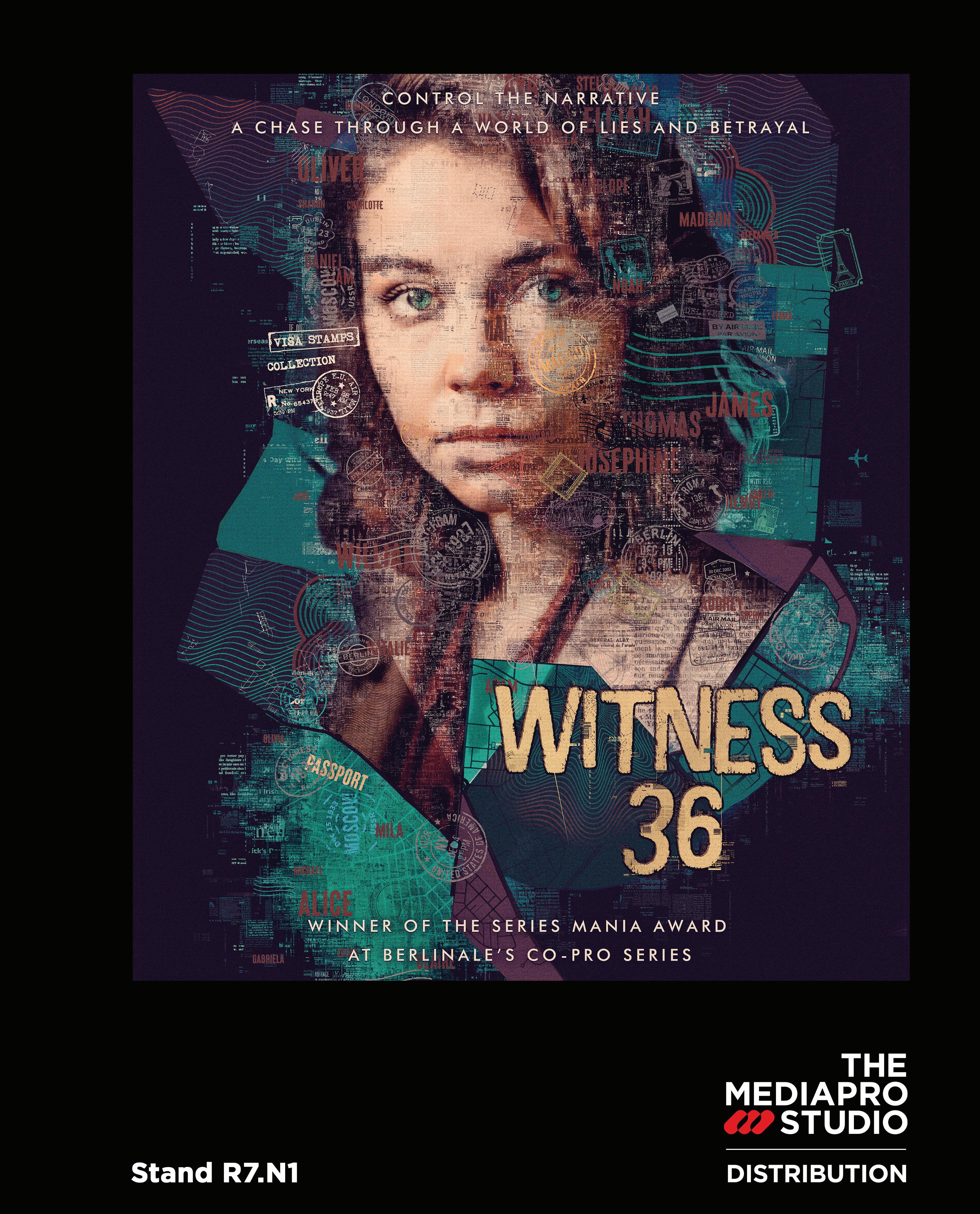





This is the frst MIPCOM Cannes since the fnal MIPTV, and if that’s not a good time to take stock of how international television has changed, then we don’t know when is.
The reasons for the ending of the April confab are well-known, so now we look forward and see what’s next. Therefore, we’ve stacked this issue with the buzziest shows, brightest stars and biggest brains in the content game that are changing the status quo as they go.
Our cover interview with Happy Valley star James Norton and his Rabbit Track business partner Kitty Kaletsky is a case in point. Stars are no longer happy to ft neatly into one box— they might want to be an actor, a producer or director. Or, like Industry star Marisa Abela, they may want to utilize their early career success to take control of the next chapter. Development trends change all the time, and while a great original concept can break through, we’ve taken a deep dive into the
world of book-to-TV adaptations to assess how that red-hot market is evolving, plus we look at what’s new in Southeast Asia. And just as development evolves, so does funding. Our feature on tax credits presents interesting solutions to the piecing together of the evercomplicated fnancing jigsaw, with plenty there to get people talking.
All that, plus interviews with Netfix Latin America content chief Francisco “Paco” Ramos, Pachinko creator Soo Hugh and our evergreen The Hot Ones feature. We’ve got lots to keep you occupied. If there’s a star, genre or theme that’s important in today’s market, then it’s likely Deadline has it covered. Let’s usher in this new era for the Cannes markets, raise a glass of rosé and talk television.
STEWART CLARKE Senior Vice President, Content, International
JESSE WHITTOCK
International Television Co-Editor
MAX GOLDBART
International Television Co-Editor
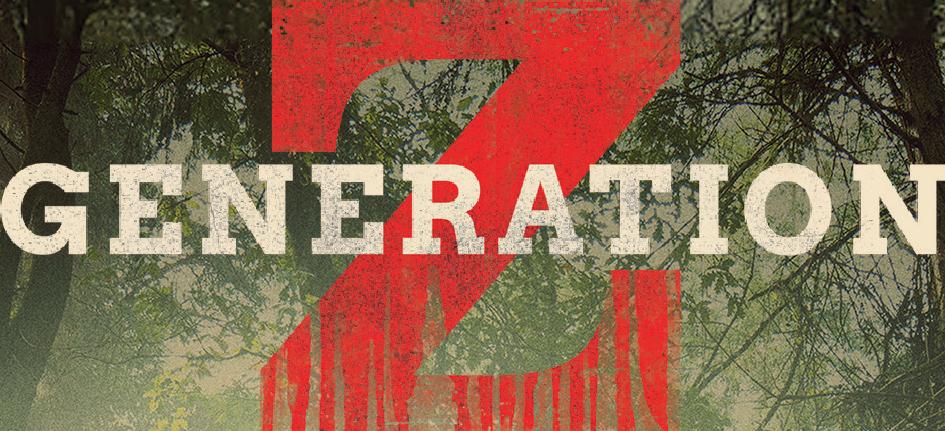













Deadline
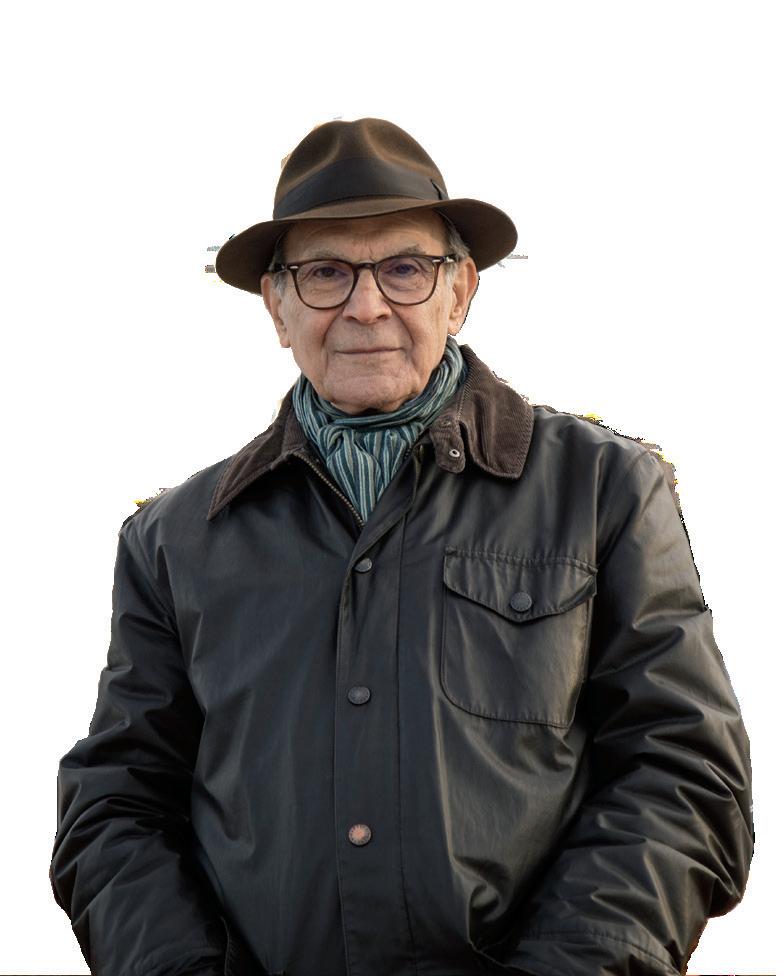

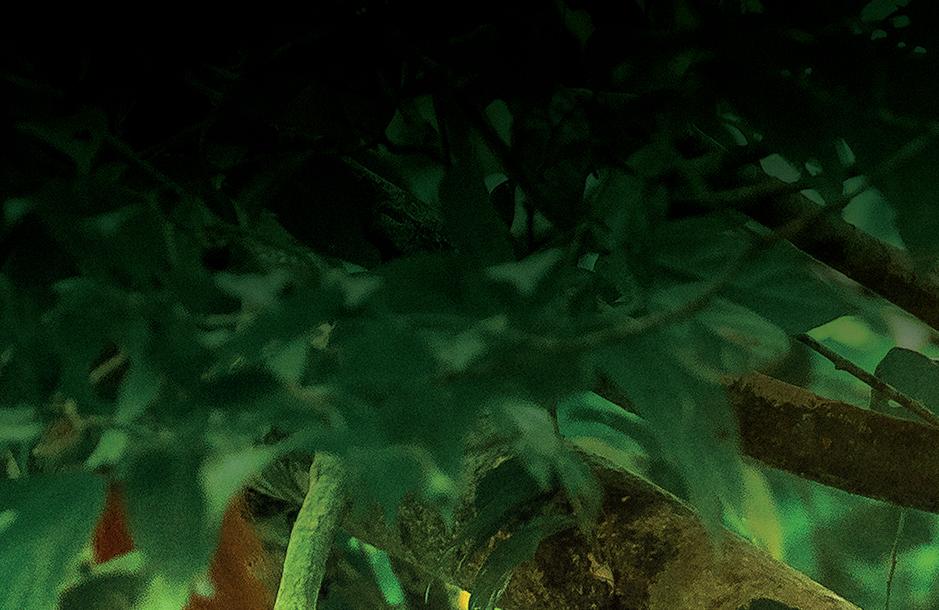











Distributors are leaning hard into repeatable procedurals that offer escapism, like NCIS: Origins, Death in Paradise and Grey's Anatomy
BY MAX GOLDBART
News broadcasts have been dominated by confict, pandemics and economic strife in recent years, and sometimes a bit of escapism is just what’s needed in troubled times.
Sellers are alert to this notion and know that nothing builds a greater sense of escapism than the procedural genre, one that is having a moment as buyers seek cheaper, repeatable fare in an era of squeezed budgets and risk aversion. That well-trodden formatted path of a pair of grizzly detectives
solving the unsolvable each week feels very much in vogue again. Huge international franchises such as NCIS, Death in Paradise and SEAL have been expanding (more on that on the opposite page), while others have gotten a second wind on streaming platforms.
When Deadline invited submissions for its 2024 Hot Ones, we were not surprised that several distributors were making procedurals a cornerstone of their MIPCOM slates, including Paramount Global Content Distribution’s
NCIS: Origins, Fifth Season’s Saint Pierre and Leonine Studios’ Juliet—all key titles.
“Procedurals have become a foundational building block both for linear and streaming,” says Brandon Katz, Senior Entertainment Industry Strategist at Parrot Analytics, which recently wrote a white paper on the topic.
“Not only do they bring in a consistent food of viewers, but they are extremely recyclable. This makes it easier to branch of and create other formats and suddenly your

broadcast network is 45% full of franchises, easing the pressure of programming teams.”
Rather than kill the market for procedurals, streamers appear to have given them a fresh lease of life, and they are not just playing in the acquisition game. While Grey’s Anatomy has been one of Net fix’s top acquisitions for a decade, the streamer recently ordered medical procedural Pulse, produced by veteran Carlton Cuse, one of the brains behind Lost. Max, meanwhile, commissioned a cop drama based on Geraldine Hart’s experience as an FBI agent, while High Potential, the U.S. remake of the French-Belgian procedural HPI, has been performing well on ABC and Hulu.
Streamers have turned to retention over subscriber growth as their most valued metric, and Katz explains that procedurals “boast some of the highest levels of genre afnity,” meaning that once someone has watched one, they are likely to watch another. This is gold dust for in-fux streamers desperate to keep subs on their platforms for longer.
What does this all mean for the limited series, which were so in vogue during the boom era? While Katz feels there is still a place for them, he says this current era is defned by “seeing the value of recurring engagement and interest, where you don’t have to sell audiences on something new.” Instead, he feels the major players are more likely to bet big on more seasons of shows that may have started out life as limited series but took of, such as Shogun or Beef. If a murder needs solving somewhere near you, a distributor is likely not far behind. ★
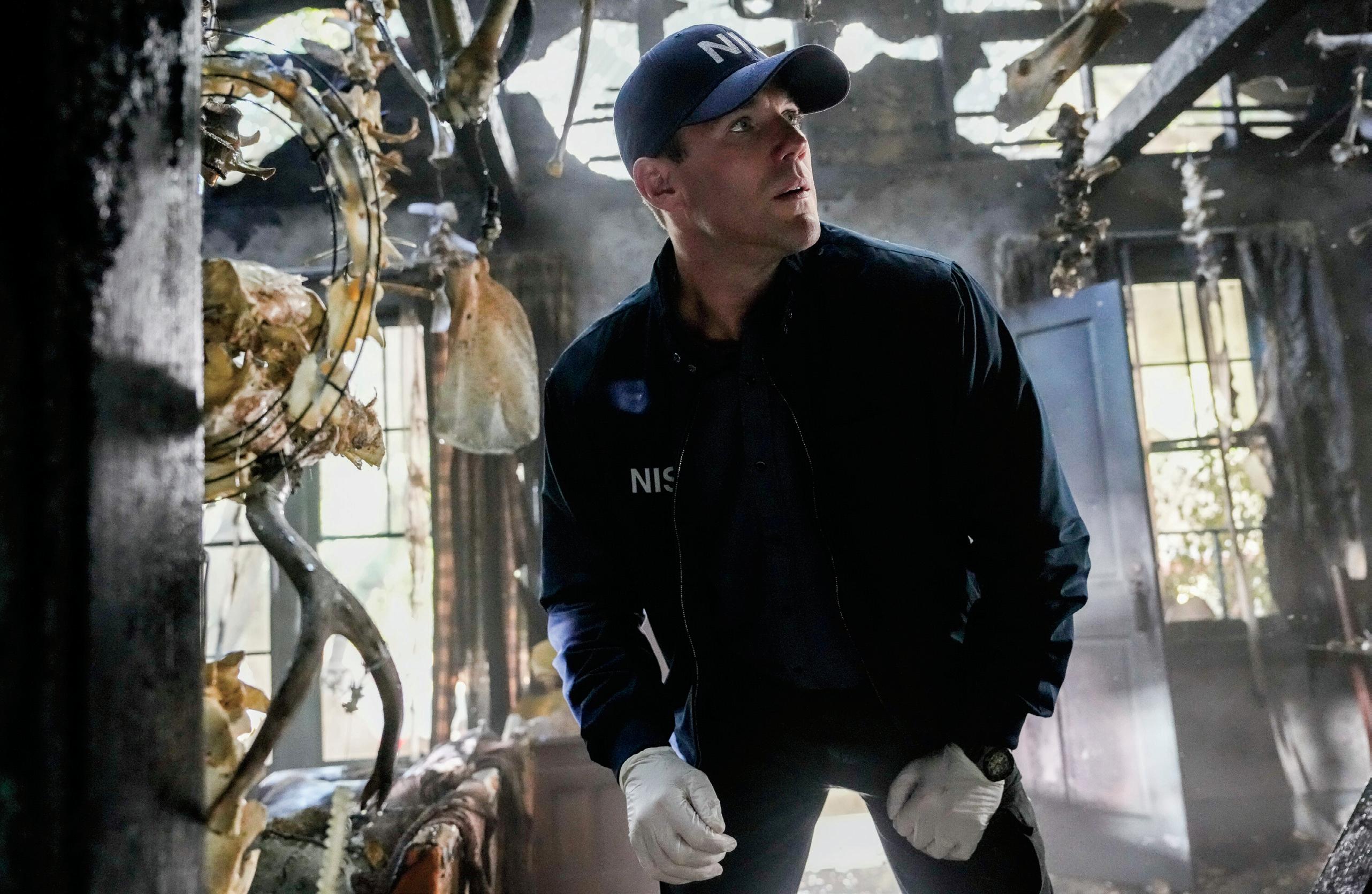
Mark and Sean Harmon and the showrunners behind NCIS: Origins on going back to the source
BY STEWART CLARKE
NCIS as a franchise has launched shows set in Los Angeles, New Orleans, Hawaii and Sydney, Australia, and clocked up more than 1,000 episodes of network drama. Its latest variant, NCIS: Origins, provides something different and darker as the show goes back to the source.
Paramount Global Content Distribution will be landing in Cannes with the new show, and ahead of the event, Deadline sat down with the team behind it: Mark Harmon, the original Leroy Jethro Gibbs and an exec producer on the new show, along with his son and fellow EP Sean Harmon, and co-showrunner/EPs David J. North and Gina Lucita Monreal.
“The character of Gibbs has resonated with global audiences because he is a role model and at the same time someone you can relate to,” says Sean Harmon. “The world is used to seeing Gibbs as ‘the boss’, but in NCIS: Origins we are dealing with a much less tempered version of him. Fans can look forward to a more intimate look into what makes Gibbs
tick, as well as meeting some of the characters who influenced him along the way.”
The prequel winds the clock back to 1991. It starts on Gibbs’ first day of work as a probationary agent, and flashbacks set up how he ended up at what was then called NIS. The new recruit has endured a terrible personal tragedy months before the point where the series kicks off.
“NCIS: Origins is just after the death of his wife and daughter,” says Mark Harmon. “He is the ‘newbie’ at NIS and learning every day under Special Agent Mike Franks. We will see him develop and grow into the man he becomes, and we will ride with the audience revealing that backstory and history.”
North says NCIS fans are in for a surprise. “It’s much more serialized. Gina and I originally sold it and developed it for streaming for Paramount+. It moved over to network [with a 2024-25 season straightto-series order], but we wanted to do more of a streaming style of show.”
Monreal picks up the thread. “The tone itself is a bit grittier, it’s a bit darker, which we love, because we feel like we’re pushing the envelope as far as what the franchise does, but at the same time, we’re keeping the heart of it,” she says. “What makes NCIS so beloved is this found family aspect, and this work family that is the center of each show. We’re definitely holding true to that.”
The showrunners want fans to trust their instincts. “We really are going to a deeper place,” says North. “The most special episodes of NCIS are always the ones about our characters. Those episodes are all sprinkled throughout the seasons, and those are the ones that stick with people the most. Gina and I have sought to do that every single week on NCIS: Origins.” ★
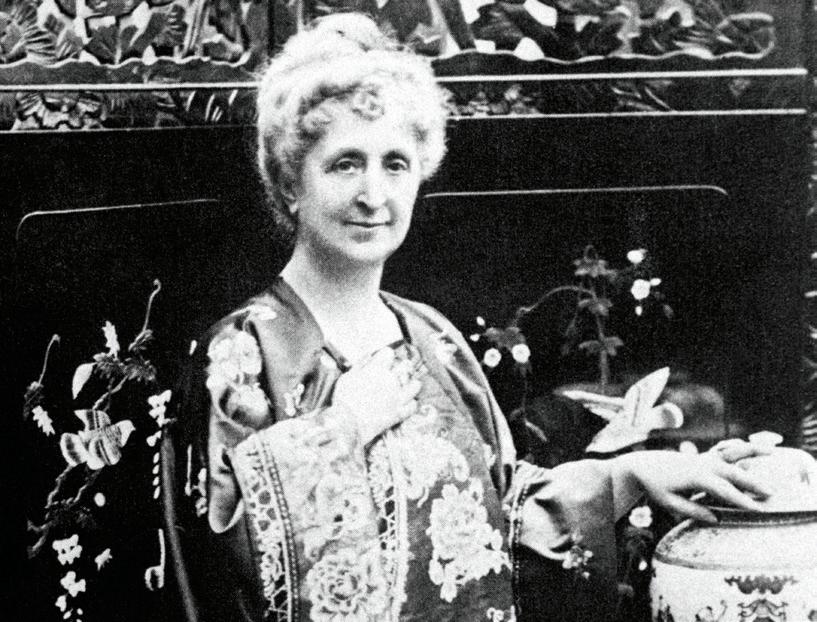
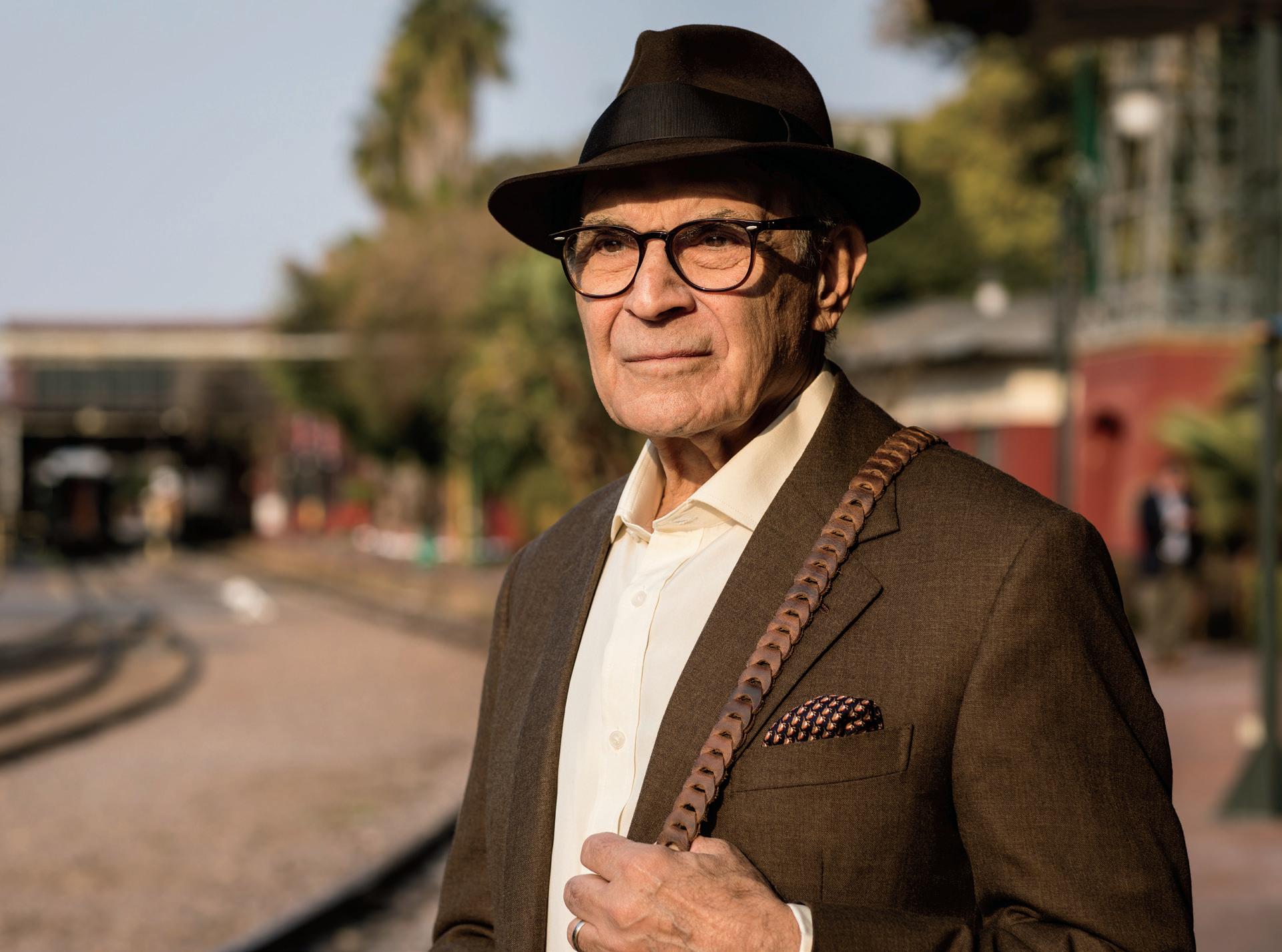
The Poirot star pulls back the curtain on the famously private crime writer’s hedonistic early years: “She was a little bit firty. I wish I'd met her”
BY STEWART CLARKE
Having played Hercule Poirot on TV for more than a quarter of a century, David Suchet has become something of an expert on Agatha Christie, the world-famous author who created the iconic Belgian detective and penned scores of bestselling crime novels. Sleuths among our readers may know already he’s headed to the Croisette this year to promote his doc series Travels with Agatha with Sir David Suchet.
Retracing a journey Christie embarked upon at the start of her literary career, he discovered a new side to the prolifc thriller writer—a bubbly, efervescent character who socialized well into the wee hours of the night and, at the beach, was even known to catch a wave.
“I’ve got to know my author as a more three-dimensional human being and that's an unexpected gift,” Suchet says of his modern-day voyage, which took in Australia, Canada, Hawaii, New Zealand and South Africa. “I was learning about the character of a young lady who loved sur fng, who loved socializing, who actually, when her early stories were published, would willingly give press interviews. She was vivacious. On board the ship, she openly writes in her diary that she was kept up into the early hours with one of the ofcers on board. The Agatha Christie that I was discovering during my journey was happy. She was a little bit firty. I wish I'd met her.”
The travelog series sees the actor follow a
course charted by the Poirot and Miss Marple writer in 1922 when she only had one book published, The Mysterious Afair at Styles. She was accompanying her then husband Archibald “Archie” Christie on The British Empire Exhibition Mission, with the trip designed to rustle up interest in a subsequent celebration of the British Empire.
The insight into the life of a young Christie is all the more fascinating given her publicity-shy and enigmatic persona in her later years, including a famous 11-day disappearance in 1926 that was the stu f of newspaper headlines. “In her later life she was reclusive,” Suchet explains. “She didn't enjoy publicity. She was a very private person.”
Suchet says the trip gave him a greater read on the character he played for so long. “Agatha Christie was violently seasick every time she traveled,” he says. “In retrospect, that was a very good reason that she made Poirot violently seasick as well. A lot of her experiences were put into her books and her characters.”
Soho Studios and Two Rivers Media are making the show, with Channel 4 in the U.K., BritBox in North America and the Nordics, and SBS in Australia already on board. MIPCOM will see the show have its international launch and Suchet will be in town. It is a key title for Sphere Abacus, the newly minted producerdistributor created this summer when Sphere Media acquired Abacus Media Rights. ★

The 80th anniversary of the Second World War’s end is coming next year and producers are telling the stories of the confict’s key fgures in new ways
BY JESSE WHITTOCK
Next year marks the 80th anniversary of the end of World War II and it’s no surprise networks and distributors are gathering the troops to commemorate. With war spreading in the Middle East and conficts ongoing elsewhere around the world, the poignancy of programming in this area has been amplifed this year.
What sets apart the noisiest of the new productions in this space that are heading for MIPCOM in Cannes, is that many of them aren’t using the global confict as the actual setting for their stories. Instead, the war is a jumping-of point for wider, exploratory narratives, and themes diferent to those in traditional programs.
Among the most notable is the six-episode drama series A World Divided, which integrates archive footage with fctional drama. The series follows six people whose personal and political stories crystallized divisions and decisions that impacted the Second World War through to the beginning of the Cold War in the 1960s.
Delia Mayer, known for her role in Netfix’s Unorthodox, plays Golda Meir, who would

become Israel’s frst and only female prime minister. Meriel Hinsching (Das Boot) plays New Mexico atomic bomb scientist Joan Hinton; Lupin’s Moussa Sylla is Martinique’s antiGerman freedom fghter Frantz Fanon; Max Wagner (German Crime Story: Gefesselt) plays German rocket engineer Wernher von Braun; Lara Mandoki is Hedwig Höss, wife of Auschwitz concentration camp leader Rodolf Höss and mother to his children; and Denys Rodnianskyi plays future Soviet Union leader Nikita Khrushchev. Directors are Poland’s Olga Chajdas, who shot the Höss scenes on location in Auschwitz, and Frank Devos. Lead producer LOOKSflm has made shows such as 14—Diaries of the Great War and will be in Cannes with the series. A trio of European pubcasters are on board already. Chadjas says there was “no agenda in terms of an anniversary,” and instead the only mission statement was to show that “history likes to repeat itself.” For that reason, even villainous characters such as Höss, whose husband was responsible for the worst atrocities
of World War II, are presented “without judgment”.
In a similar vein, Fremantle will be shopping M. Son of the Century, the buzzy Joe Wright-directed Sky Studios series about Italian fascist dictator Benito Mussolini, played by Luca Marinelli. Adapted from Antonio Scurati’s bestselling novel, it charts the rise of fascism in Italy and Mussolini’s story in the 1920s. Season 1 captures 10 years of Il Duce’s life, building towards the murder of socialist politician Giacomo Matteotti.
In an interview with Deadline at the Venice Film Festival last month, Wright said the series was fundamentally about “how dreadful men can be” and added he was interested in the Italian response, as “Italy has never fully faced up to its fascist past.”
With populism and far-right politics beginning to take hold in Europe and the Americas once again, confict in the Middle East appearing out of control and Russia’s attack on Ukraine continuing unabated, productions that remind us of the horrors of war might play a bigger role than just flling schedules and stocking streamer interfaces. ★

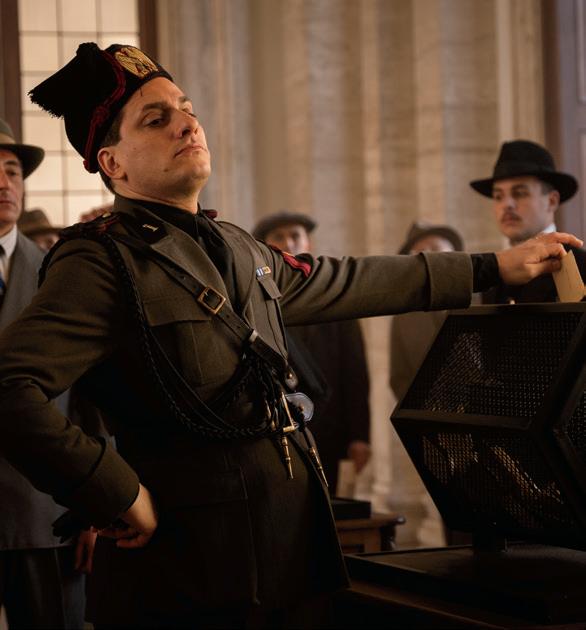

After leaving drama school, she would have said yes to almost anything—but along came Industry. The star of the BBC-HBO hit talks about fnding her feet, and how she coped with the pressure of playing troubled chanteuse Amy Winehouse
BY MAX GOLDBART
Every generation of small-screen hits has its show that catapults a wealth of young actors to stardom. One only need think back to Skins, Channel 4’s cult mid-noughties TV series about a group of teens discovering themselves—its frst season alone featuring now-Hollywood A-listers Nicholas Hoult, Daniel Kaluuya, Kaya Scodelario and Dev Patel. Industry, from up-and-coming showrunners Mickey Down and Konrad Kay, could be deemed this decade’s version. The BBC-HBO hit has propelled actors including Myha’la, who featured in Netfix’s most-watched 2023 movie, Leave the World Behind, and Harry Lawtey, who plays Harvey Dent in Joker: Folie a Deux, into the stratosphere.
Having starred as Amy Winehouse in the StudioCanal biopic Back to Black and soon to be seen with Cate Blanchett and Michael Fassbender in Steven Soderbergh’s Black Bag, Marisa Abela is another Industry breakout. She plays the fawed, privileged and vulnerable Yasmin Kara-Hanani in Industry, and sits within this stratospheric trio.
“The camaraderie we have, especially between the three of us, Marisa, Myha’la and Harry, is incredibly rare,” Abela says in the weeks after Industry’s HBO premiere. “We started in the same place, on the same show, and we now have this shared understanding of the business through a lens that is quite similar. People have diferent criteria for what is important in casting, and in Industry, it was just

like, ‘We want these young actors to just rip this apart’.”
On the surface, a show following fnancial interns that spotlights the intricacies of the banking sector should have had a one-in-a-million chance of success. Yet it is the Bad Wolfproduced Industry’s cutting take on the pressures of youth, searing dialogue and ability to reinvent itself that has ensured its place as a cornerstone of the HBO schedule, with Season 3 taking up the coveted Sunday 9 p.m. slot when House of the Dragon concluded. Also starring Ken Leung, Sagar Radia and Sarah Parish, Industry charts the goings-on at fctional bank Pierpoint, with a focus on the lives and Machiavellian machinations of Yasmin, Myha’la’s Harper Stern and Lawtey’s Robert Spearing. That latest season, which launched on HBO in August and the BBC this month, is by far Industry’s splashiest and was boosted by the full might of HBO’s marketing frepower. The season sees Yasmin take on an even bigger role, acting as dual confdante-love interest to Kit Harington’s Henry Muck, the aristocratic billionaire owner of an environmental, social and governance frm—the theme this time being the hypocrisies and hypocrites that rub up against the


idea of ‘woke investing’. The season has garnered top reviews with critics and Industry has already been re-upped for a fourth run, while Down and Kay have just had their overall deal with HBO reupped.
“Season 3 was physically and emotionally more difcult than the other two but I’m a bit of a glutton for punishment when it comes to this job,” Abela says. “The scope was just so big. I felt incredibly moved that Mickey and Konrad wanted to give me this moment to let Yasmin rip emotionally.”
Harington, he of “You know nothing Jon Snow” fame, and one of the most high-profle actors that Industry has snared thus far, was “just so brilliant to work with,” Abela adds. She says he brought nuance to a role that could have lacked subtlety in less-gifted hands. “Kit manages to walk an incredible line between that kind of aristocratic separation from reality and being an emotionally vulnerable boy,” she adds. “You feel he needs to be taken care of and then you look at him on a macro scale and he is so powerful.”
Harington’s character helms a fresh type of investment frm as the show’s creators move with the times. Over fve years of making Industry, Abela says she is “none the wiser” about the ins-and-outs of stock markets, shares and the FTSE, but has become well versed in “the politics of that world, what kind of people it attracts and what kind of people it repels.”
Growing with Yasmin Abela has barely had a chance to take stock since the 27-year-old landed the Industry part around six years ago, not long after she had completed her Royal Academy of Dramatic Art studies and with barely a credit to her name. She says she warmed to the scripts immediately while feeling an afnity with a character entering
an intimidating business that can chew up and spit out the very best.
“I was being ofered two scenes to play someone’s daughter at the time and at that pivotal stage I would have said ‘yes’ to things that were a lot less considered and well written than Industry,” she explains. “The whole point was that it was about these young people and all the nuances of what it is to be just starting out. As someone about to start my own journey it felt so real to me.”
Abela is keen to draw a line between herself and her character— “especially by circumstance” (she grew up in a single-parent household and her mother is an actor, while Yasmin comes from millionaire publishing stock)—and she points out that Yasmin works in an industry where “her ultimate goal will be a by-product of her success, while in acting, the most important goal is the art, and everything else is a by-product.”
But she says she and her character have grown together and “as [Yasmin] has gotten stronger in her willingness to assert herself, there are probably parts of me that have done the same... She wasn’t an assertive person in the workplace at frst and didn’t know how to set boundaries. Mickey and Konrad said at the beginning it was important that she had an artifce of confdence and luxury but she felt vulnerable.”
With her ever-thorny relationship with fellow lead Myha’la’s Harper, Abela’s character has become an integral part of the Industry machine as the seasons have rolled on. As time has progressed, she has been given the opportunity to imbue more of her skills as an actor into the character. For example, she has been keen to “bring a sense of humor” to Yasmin, which wasn’t necessarily present in her frst couple of episodes, while also handing her

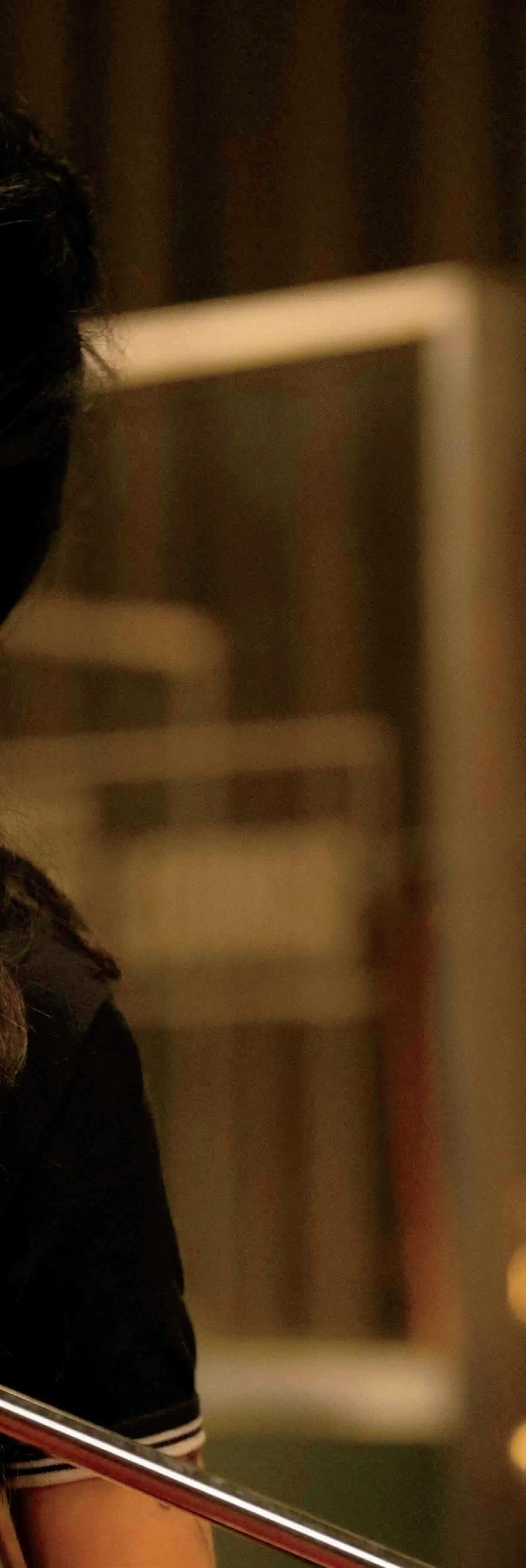
“So much of being exposed in the way that we are can be linked with shame and I don't think that's a useful emotion in any way.”
a certain dryness. “After a while Mickey and Konrad know us so well, they start writing things they think we can do.”
Down and Kay are relentlessly honest about what they deem the failings of Industry Season 1, describing themselves as “naïve and arrogant” when starting out, branding frst drafts “soulless and lifeless” and expressing surprise that they were given a second season.
Abela knows all too well how “incredibly critical of themselves” the pair can be but says locating the truth in something can sometimes be a “messy” business. She compares the early Industry episodes to “leaving a party and thinking, ‘Oh shit, I wish I had never said that thing which might have been incredibly honest but felt embarrassing and weird at the time.’”
“Sometimes our performances and the Season 1 narrative might have been a bit clunky, but the fact people were willing to forgive and enjoy the show says that it is real, authentic and resonates,” she says.
Abela resolves to relay the ‘leaving a party’ analogy to Down, with whom she is about to have dinner.
The experience of working closely with the ex-fnancier-turned-auteur duo has made Abela consider whether she would like to gain agency by someday working behind the camera, and this feeling was buttressed by playing Winehouse in Back to Black, her biggest movie
project to date.
Back to Black was quite the “labor of love”, Abela says, since it involved an intense four-month prep and three-month shoot. “You put so much into it physically and emotionally, and then you leave and a year later it’s diferent— things exist, and things don’t exist,” she adds. “That was hard. If I did a job like that again, it would be good to have a way of being in the room more.”
With many months having passed since the world was introduced to Back to Black, Abela, without a hint of arrogance, stresses several times that she is “proud,” not of landing the part but of how hard she worked and how she was able to do Winehouse’s story “justice.”
Playing such an icon took its toll, Abela says, and she “wouldn’t do one of those jobs every year.”
Sam Taylor-Johnson’s movie faced intense scrutiny for the decision to portray the iconic star whose short life was badly damaged by drugs and booze, depicting her decline alongside the lives of those closest to her whose experiences have been probed many times over.

This scrutiny was heightened when pictures began to emerge of Abela flming around Soho with the famous Winehouse ‘beehive’. And that scrutiny ramped up by a factor of 10 when the trailer was rolled out. Abela says she subsequently “switched everything of ”, adding, “I frmly believe that the enemy of actors is self-consciousness. As soon as you start being vain, self-conscious or aware of yourself in the moment then you cannot be present.”
In the end she had little to worry about. The movie was reviewed pretty warmly while Abela’s performance was roundly praised, with Deadline’s Pete Hammond tipping her as an outside Oscar bet. “So much of being exposed in the way that we are can be linked with shame and I don’t think that’s a useful emotion in any way, so I’m proud I worked as hard as I did,” Abela says.
Next up is Black Bag, the underwraps Soderbergh spy thriller with Focus Features that sees Abela working with the aforementioned Blanchett and Fassbender, and Rege Jean-Page. It is set for release in around six months.
Now, after all of their successes, all eyes are on Abela and her Industry cohorts. She believes she has hit an exciting milestone of late by getting to a place where she can turn down ofers and become a little pickier.
“For me, that has just changed,” Abela says. “It doesn’t mean I can do whatever I want, but I’m right at the beginning of that new space where I don’t have to always say ‘yes’. This is about having agency,” she says.
This year’s big Emmy winner, Shögun, was based on a novel frst published in 1975. No wonder producers are combing their bookshelves for inspiration…
BY JESSE WHITTOCK

Sally Rooney recently stunned the entertainment world when in a newspaper interview, she said her experience of adapting her much-loved coming-of-age novel Normal People for the BBC and Hulu left her feeling like TV was “not a world where I belonged.” Accordingly, the in-demand writer has since said no to ofers to option her third book, 2021’s Beautiful World, Where Are You. The same will be likely for her latest, Intermezzo Rooney’s decision was especially surprising given the TV market has been so driven by book IP, with option prices rising sharply and demand bigger than ever. In fact, around a year ago, we hear drama commissioners put out a call to TV makers. The broad message was “IP over original ideas as often as possible.” While books have long been the engine of television and flm, the notion everything must come with proof of concept has shifted the dial.
Tristan Orpen Lynch, co-founder of Irish indie Subotica, recalls the impact: “People started saying everything needs to be based on IP, and the industry reacted and started buying more and more. There will always be a place for pure, original ideas but there does seem to be a blind reliance on IP at the moment.”
Larry Robinson, founder of LA-based management and production company Avatar Entertainment, adds: “In the last year, it has really picked up. We have changed our focus to be much more aggressive in the books to screen space.” As such, Avatar has picked up options in Spain and the U.K. among other territories to package scripted projects for studios and other partners.
But why did the call come in the frst place?
Following the pandemic production lockdown, networks and streamers had been rushing to greenlight a wide variety of projects. Many original shows landed, while book adaptations such as Slow Horses and Nine Perfect Strangers were in vogue. However, Wall Street’s lockdown enthusiasm for streaming waned just as the TV advertising market crashed in 2022. Budgets— and appetite for risk—dropped across the board. Suddenly, it made sense to ditch the unknown for tangible ideas.
“Studios love to work with established IP because there is some kind of existing audience and awareness,” says Robinson. “There is a blueprint of what the whole show or movie will be about. It gives them a comfort level that an original story just doesn’t have.”
“Studios love to work with established IP because there is some kind of existing audience and awareness. There is a blueprint for what the whole show or movie will be about.”

Hilary Strong, until recently CEO of International Literary Properties, put it another way during August’s Edinburgh TV Festival: “In a difcult market, having titles and authors does help to elevate a pitch. It gives commissioners something tangible. Taking raw work that’s had an extraordinary life before it goes in to a commissioner gives confdence to that pitch in this current market where people are nervous.”
That’s not happy reading for many screenwriters with ambitions for their own series, but what is the longer-term outlook for the drama

market? Broadly, the eight sources from the flmed entertainment and literary worlds we’ve spoken to for this piece talk to a red-hot market for books-to-TV dealmaking, both in the U.S. and internationally, but some question how costs can continue rising amid wild demand and a recovering flm market.
Felicity Blunt, literary agent at UTA-owned Curtis Brown, recalls how there was “a roar back to production after Covid,” which led to a spike in option deals and development. “What has continued to move at pace since then is the acquisition of underlying IP,” she adds. “There is always something concrete in it.”
Blunt is a frst-time executive producer on Rivals, the Disney+ series adaptation of her client Jilly Cooper’s novel from 1988. Set in the fctional English county of Rutshire, it follows a rivalry between two powerful men that seeps into the running of a local television station. David Tennant, Aidan Turner, Katherine Parkinson, Lisa McGrillis, Alex Hassell, Danny Dyer and Emily Atack star in an ensemble cast,
with Dominic Treadwell-Collins leading the production. “Jilly has a fanatical fanbase,” says Blunt. Even so, this is the frst time Rivals has been adapted as a series.
The past few years have seen a slew of deals for everything from the biggest new bestsellers to older novels such as Rivals and Shögun. Companies from all over the world are investing in everything from newspaper articles to Korean webtoons, but a traditional chapter-based novel most closely mirrors a television series format, so that’s where most of the cash is going—albeit with the caveat that great stories can come from anywhere.
“People are still saying they want IP, but shows constantly break through that are original,” says Bruna Papandrea, co-founder of


Australian production house Made Up Stories. The Australian-born producer has been at the heart of the books-to-TV system over the past decade, adapting bestsellers such as Big Little Lies, The Undoing, Nine Perfect Strangers and The Lost Flowers of Alice Hart into series for the likes of HBO and Prime Video. Around 80% of Made Up Stories’ slate is acquired book IP from the likes of long-time collaborator Liane Moriaty.
Optioning, however, can be an expensive habit, with Papandrea noting that the current market is seeing many “super competitive situations, mostly for TV,” even accounting for a slight shift back toward flm. “I’ve paid $1,000 and $1 million and everywhere in between,” she adds. “The cost depends on where you’re going to make it.”
Blunt adds books returning to the open market can also lead to “frenetic auctions”.
Of course, the wider TV market is conservative and slow-moving right now, and that can have signifcant impact on its constituents. “Some things are taking longer at the moment, and it does put pressure on independent production companies,” says Papandrea. “I will not option something now unless I know it will be made because of the cost.”
One agent notes that “lots of things get optioned that never get made,” which can be devastating for the author and their relationship with the TV and flm industry. “It is our job to get the book into the hands of an expert producer with access to talent,” says Blunt. “You try to set it up with the best mechanics so it can get made, whether that’s a big-name writer or A-list talent.”
Any changes, such as re-setting the stories in diferent countries, are carefully assessed. Of course, this can work out. “Liane Moriarty’s books weren’t hurt by being transplanted into America,” says one agent admiringly.
It all comes back to the relationship with the author, says Michelle Weiner, Head of CAA’s book division. “There are examples where authors are open and excited by stories told with a movie star at the center or adapted by a certain writer, and for those reasons it could be set somewhere else,” she says. “Others are very happily told in their original setting.”
Rafaella De Angelis, who leads literary adaptations for Fremantle’s global drama division, says optioning novels “without considering the next steps frst is a disservice to the author.” That’s a constant guiding

principle for the likes of Blunt and Papandrea, who say the whole system relies on trust and respect for the author’s work.
The U.S. studios have faced this criticism, with some sources we’ve spoken to privately voicing frustration with the amount that gets gobbled up by Hollywood as soon as new books hit the market. Notably, Universal International Studios and its sister companies and NBCUniversal have appeared very active over the last year, unveiling numerous acquisitions for novels from the likes of Lucy Foley, whose The Midnight Feast was a hot property at the London Book Fair earlier this year.
“We all get to see the material at the same time, but it’s hard to compete with the U.S. studios,” says Hannah Grifths, Head of Adaptations at Banijay Entertainment.
Coming to the defense of the U.S. majors during the Edinburgh TV Festival was Claire Lundberg, CEO and founder of Paris-based CTL Scouting, who told an audience: “American



“Everyone is always looking for something di ferent and new, and there are a lot of ways to work through that depending on the author's desires.”
studios get dinged for buying a lot and not making a whole lot,” but she said that this didn’t always refect the reality.
CAA’s Weiner says that whatever the shape of the deal, working with the writer is paramount. “Everyone is always looking for something diferent and new, and there are a lot of ways to work through that depending on the author’s desires,” she says. “That could mean pairing them with an experienced producer.”
Internationally, Weiner notes her team in London is fnding more projects than ever, and equally has more ways to make them. This is thanks to the emergence of European fnanciers and funding bodies, plus streamers that “can uniquely market local language stories” and indie funders.
However, not everyone believes that the
books-to-TV trend is on the up. Banijay’s Grifths is among those who say it “peaked about three years ago,” as despite the comforting nature of an option, “a lot of people got burned by the cost of IP.” That said, she stills sees the value in book properties: “Why risk something when you can have an insurance policy?”
Grifths predicts there will be more adaptation of iconic novels from the 1970s and 1980s, as seen in projects such as Rivals and Frederick Forsyth’s assassin story The Day of the Jackal, which has been adapted for Sky and Peacock starring Eddie Redmayne and will launch on November 7. Moreover, she says there is a wave of horror novels coming, though the male action genre that’s spawned the likes of Jack Reacher and Jack Ryan is sparse. Curtis Brown’s Blunt agrees horror is “really hot”, and
adds that “grown up, smart and serious love stories” remain in demand, as does ‘romantasy’—fantasy stories with a central romance at their core (think Twilight). Whatever breaks through, it won’t be cheap. Fremantle’s De Angelis notes that costs for top writers’ new wares can be “huge” investments for production companies, which may infuence how the future develops. “Anything Sally Rooney writes right now will be incredibly expensive,” she says, speaking to Deadline in the weeks before the Irish author revealed she had ruled herself out of the adaptations game.
Anyone determined to land Rooney’s critical darling Intermezzo or Beautiful World, Where Are You will need all their powers of persuasion and a very, very big check indeed to change her mind.
The duo behind Rabbit Track Pictures take Deadline down the rabbit hole


ike the name of a band or title of a great album, the moniker given to a production company can come loaded with meaning.
“I wanted to make it something personal, rather than just cool-sounding and generic,” James Norton explains when asked about Rabbit Track Pictures, the flm and TV production company he runs with Kitty Kaletsky. “I went through all these halcyon flms and stuf, but actually, the rabbit track, for me, was somewhere as a child at the back of my garden. From the moment I can remember, it was the place where we were allowed to roam, and adventures would happen. It was fun and wild and feral.”
The name was chosen before Kaletsky came on board, but the production company has since been a joint enterprise. Kaletsky—formerly of Number 9 Films, Archery Pictures and Black Bear—often handles the day-to-day operations, notably when Norton is flming. As we speak, Norton is about to end the frst block on House of Guinness, the Netfix drama series from Peaky Blinders creator Steven Knight about the family behind the famous stout. But there are two sets

of fngerprints over the projects they have under their belts and on those to come.
The story so far encompasses a Netfix movie, Rogue Agent, the upcoming period epic King and Conqueror and Playing Nice, an adaptation of the JP Delaney novel. Rabbit Track’s ofces are on London’s iconic Carnaby Street. The piles of books around the place give a clue to the next chapters, a handful of which the indie company founders will reveal for the frst time here.
There will be adaptations of some of the buzziest literary oferings of recent times, including Elizabeth
Day’s Magpie and Suzanne Heywood’s Wavewalker, and projects with an array of in-demand writers and directors, including Jack Thorne, Sally Wainwright and Aoife McArdle.
Kaletsky and Norton met through a mutual friend in LA while she was based on the West Coast and he was doing press for a movie. They bonded over Catan, a trading and empire-building board game.
“It really does bring out your true colors,” says Norton. “You have to be incredibly charming and ingratiate yourself with everyone
around the board... and also be fucking ruthless. The way Kitty played Catan was obviously indicative of how she produced.”
Suitably impressed, Norton played a move of his own, calling his now-business partner to ask if she had ideas on who he could buddy up with as he launched a production house—“I just knew I was never going to be able to do it on my own,” he says. Kaletsky picks up the thread: “And then at the very end of the telephone call, after I was thinking about who I might be able to recommend, he went: ‘Oh, you could do it? OK, bye.’ That was when the seeds were sown.”

The newbie company was launched in 2019 with the creative and fnancial backing of The Artists Partnership and that agency’s MD Robert Taylor and CEO Roger Charteris. Great Point Media also became a backer. Its boss Jim Reeve, the seasoned fnancier, passed away earlier this year and both Rabbit Trackers pay tribute to the late exec. “There’s no way that we would have the company we have without Jim. He had real faith in us when, really, he had no right to,” says Kaletsky.
If that’s the start-up tale, the backstory is that after a successful decade building an acting career,
Norton also hankered for something else. “There’s a diference between the way you’re treated as an actor and the actual responsibilities you have—people get this sense of importance because you’re indispensable. And it’s true, the work is important—the actors bring a very important piece of the jigsaw. But the more you do it, the more you realize the size of that jigsaw.”
“I wanted to be in the conversations earlier,” he continues. “I was turning up on set being told what to wear, where to stand, what to say; the tone of it was all dictated to me, and I also started to feel like I
The initial business plan was for a slate spread evenly across flm and TV and with Norton acting in about half of the projects. TV is currently 2-1 ahead and Norton is on-screen across the trio. Having an actor of his stature attached made getting greenlights easier and gave the company momentum in its earlier days, but as it becomes more established, the plan is he’ll appear in a smaller proportion of what gets made.
Norton and Kaletsky wanted Playing Nice, the JP Delaney thriller. Having gotten in the room with the author, he liked their creative plan, but ahead of getting fnancing from Great Point, they were stretched and needed a partner. They shared the idea with Joe Naftalin, SVP of Global Production at StudioCanal and he went for it. A partnership was formed and with the added frepower, rights were duly secured. It will play on ITV in the U.K. and Canal+ in France, with StudioCanal handling distribution. “We were able to up the option to a reasonable amount, but that was still nowhere near some of the American competition,” Kaletsky says.
The book tells a baby-switch story, setting up a horrifc dilemma for the parents involved. Norton plays one of the dads, Pete, opposite Niamh Algar as his partner Maddie. The other couple, Miles and Lucy, are played by James McArdle and Jessica Brown Findlay. “It’s a psychological thriller, and more psychological than thriller,” Norton says. “With our writer Grace Ofori-Attah and director Kate Hewitt, we all shared that desire to go as deep as we could with these four individuals and throw them in the middle of it and just see how they react.”
The Battle of Hastings is a staple of school history lessons in the U.K. King and Conqueror will go behind the arrow-inthe-eye headlines and bring Harold, Earl of Wessex (Norton),
and William, Duke of Normandy (Nikolaj Coster-Waldau), to life.
“It’s about kings and queens, says Kaletsky, “But what appealed to us about that epic, iconic William and Harold story was the domestic sphere, the central marital relationships between William and his wife, and Harold and his. Those relationships are the glue that bind the epic scale with the intimate.”
Icelandic helmer Baltasar Kormákur directs the series opener, with his RVK Studios one of the producers, alongside The Development Partnership, Rabbit Track, Dave Clarke and Richard Halliwell’s Shepherd Content and CBS Studios, whose sister outft Paramount Global Content Distribution will handle sales. It was made in association with the BBC, which scooped U.K. rights.
Based on the shocking true-crime story of Robert Hendy-Freegad, a conman who, in the fake guise of an M15 agent, tricked people out of their life savings, Rogue Agent was snagged by Netfix for the U.K. Norton stars as Freegard opposite Gemma Arterton as Alice Archer, the woman trying to take him down. “It was the lead characters that excited us most—two chaotic compelling souls—and the knotty dance that they go on,” Kaletsky says, adding this was a movie consciously of its time. “We put together and shot the flm during Covid, so we wanted what we felt the world at that point wanted—a gripping, moving, and almost old school Friday night movie.”
Norton in Playing Nice

didn’t necessarily agree sometimes with the ways in which the story was being told. I could see producers having conversations and I wanted to be part of them.”
With the company established, the next step was getting content made. What did the pair want the signature of a Rabbit Track series or movie to be? Kaletsky looks at Norton: “I think when I call you in the middle of the night to say, ‘Let’s get on a Zoom,’ or vice versa because we’ve read some book or article, it tends to be that we are excited because we’ve been shocked by something; we’ve been genuinely caught of guard by our delight in reading something that we therefore want to make. There isn’t an invisible thread that binds everything in terms of genre or subject matter or a particular type of character. It’s about our response to the thing.”
Tastes have aligned for Magpie, which Rabbit Track is working up as a series. From author Elizabeth Day, the psychological thriller was a Sunday Times bestseller and billed as “Single White Female with a maternal twist,” by the New York Times. For Kaletsky, it is “a story about fertility, pregnancy,
motherhood, and what it is to exist in the world where you can or you cannot conceive your own child. It’s propulsive and really moving in equal measure.”
The commercial reality of indie flm is that it’s harder to get made than TV, but features are on the agenda. There is a project with Northern Irish flmmaker McArdle, who directed several episodes of Severance, which is being developed with Film Four. Details are scant but Kaletsky teases some specifcs: “It’s a little bit anarchic, quite darkly comic and has a really specifc tone. It’s not unlike Severance actually: It bridges that gap between horror and comedy, with a very particular aesthetic.”
On the TV side, there is a Scottish crime drama that will mark the writing debut of Lynsey Miller, whose directing credits include The Boy with the Topknot and Deadwater Fell. Again, it’s early days, but it is expected to be in the Happy Valley space of multi-faceted and thought-provoking crime series. Norton, of course, starred in Happy Valley with a memorably psychopathic turn as Tommy Lee Royce. Squaring that circle, Rabbit
Having looked under the hood of flm and TV production, Norton has a new perspective and bristles when performers get over-involved. “I grimace now when actors say, ‘Do you know what, I don’t really like this scene. I want to rewrite it.’ I’m like, ‘You have no idea how many people, and how long, it took for us to get to this. You know that word you’re just throwing away? We’ve agonized over it.’”
It’s also about understanding the creativity that runs right through the process, whether that’s securing IP and developing it, fnessing a script, or work done in the edit.
“There’s the call: ‘Artists to set.’ [As an actor] you get this sense of being part of ‘the creative community.’ Then you have the producer community, which is considered much more, you know, just nuts and bolts. Bullshit. It’s such an important creative part of building this world.”
As an actor, Norton has been on many sets, including Agniezka Holland’s on her movie Mr. Jones and for series including Happy Valley, War & Peace, McMafa and Grantchester
The latter comes up when he was asked which experiences he will draw on now he is an indie boss. “I did Grantchester early on with Kudos. Emma Kingsman-Lloyd produced, [star actor] Robson Green was a delight, and there was just something they created, [then Kudos boss]

Track is also working with Happy Valley scribe Sally Wainwright on her frst feature.
There’s also an Efe Woods (Trigonometry) rom-com series that Reggie Yates is directing. Another last breadcrumb trail the

Diederick Santer and his team, a [great] workplace environment. It was tough because we were making a procedural series back-to-back, but we just wanted to be at work, and I give Kudos the credit.”
He also namechecks Nicola Shindler who founded Happy Valley prodco Red and now helms Quay Street Productions. “Nicola is one of the best and gave me an example of a great producer doing it right, I just loved working with her.”
pair lay is for a Freddy Syborn (Bad Education) drama series that they are developing.
When Deadline meets Norton, he is fretting about whether giving Banijay U.K.’s Executive Chairman Patrick Holland a bro-hug on their last meeting might have been overly familiar. It’s a lighthearted anecdote, but also reveals something about the relationship between Rabbit Track and Banijay, the production and distribution giant that invested in the indie in 2023.
Norton and Kaletsky are a bankable duo. With three projects away and development work with partners including Sony, the BBC and Fifth Season, they had a good story to tell and weren’t short of suitors when thoughts turned to getting other investors on board. Kaletsky takes up the story that resulted in them sitting down with Holland in Soho House: “We met with a lot of other people who would have potentially been great homes for Rabbit Track, but there was a

chemistry with Patrick, and a kind of a promise about what Banijay could provide and what James and I could be doing with our company, and which would never dilute its DNA. Banijay would only ofer support. That has been true to the nth degree.”
The investment came out of Banijay’s U.K. Growth Fund and the deal means international sales of future Rabbit Track projects will go through its distribution division, run by Cathy Payne. The new backing meant the indie could staf up, get a slightly roomier ofce, and roll the dice on more projects.
Norton says Rabbit Track now has greater capacity to back ideas, but the company principals have no desire to sit in a corner ofce, removed from the nitty gritty of the business. “One thing we say to every writer who comes into the room is, ‘We don’t want you to feel like you get lost.’ I think that’s one of the reasons why we successfully pulled some of those projects out of the bag, because we were able to guarantee people our attention and that Kitty and I would be over it.”
Talk of working with writers moves quickly to things that are percolating. “We’ve just brought Jack Thorne onto a project, and it’s really exciting. We have the Sally Wainwright project, which is in the works. We’re stepping up.”
Thorne is on board Wavewalker, by Suzanne Heywood, which will be adapted as a series. It tells the real-life story of how her parents took her, aged seven, and her brother on a trip sailing around the world. What should have been a three-year voyage became a grueling decade-long journey during which Heywood was desperate to return home.
Kaletsky says having read Wavewalker, Rabbit Track “pounced on the rights” and quickly took it to Thorne. “He was as taken as we were with this wild, around-the-world adventure, where sky-high waves and shipwrecks are the backdrop to a painful and moving family drama.” Thorne was the perfect person to take on the project, she adds, “because of how beautifully he can balance intimate and complex relationships with the grandiosity, joy and drama of epic adventure.”
Deadline’s time on the Rabbit Track has run well over, and the sounds of Friday evening Soho are
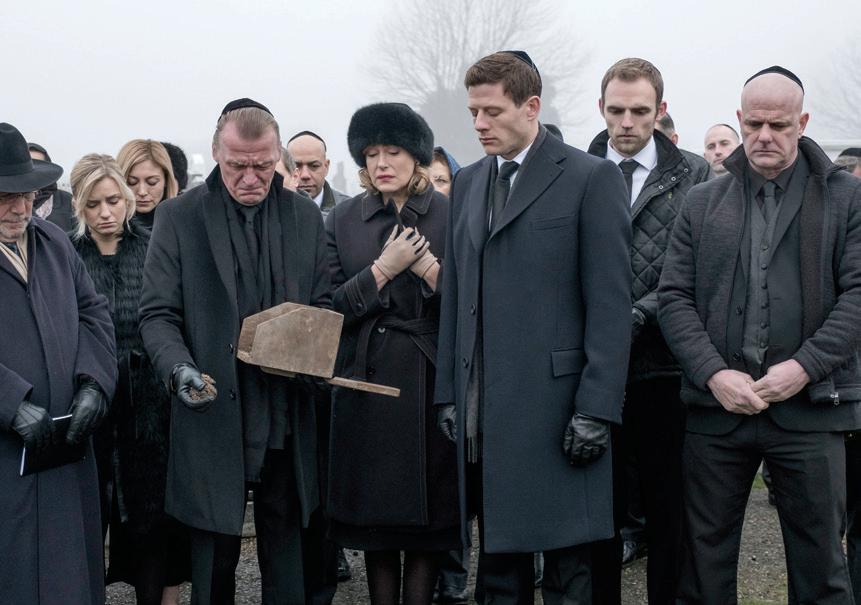
fltering into the ofce. Norton correctly predicts the payof question. “The next question is, obviously, how big do we want to get? We want to be able to work with the best [people] without compromising this atmosphere we have,” is his big picture answer. Kaletsky adds her take: “If you get too big you don’t have access to your writers anymore and you’re making promises you can’t deliver on. There’s a sweet spot in the middle. We want to be at a scale that is large enough where we’re working with the best and can also continue to support newer voices.” ★
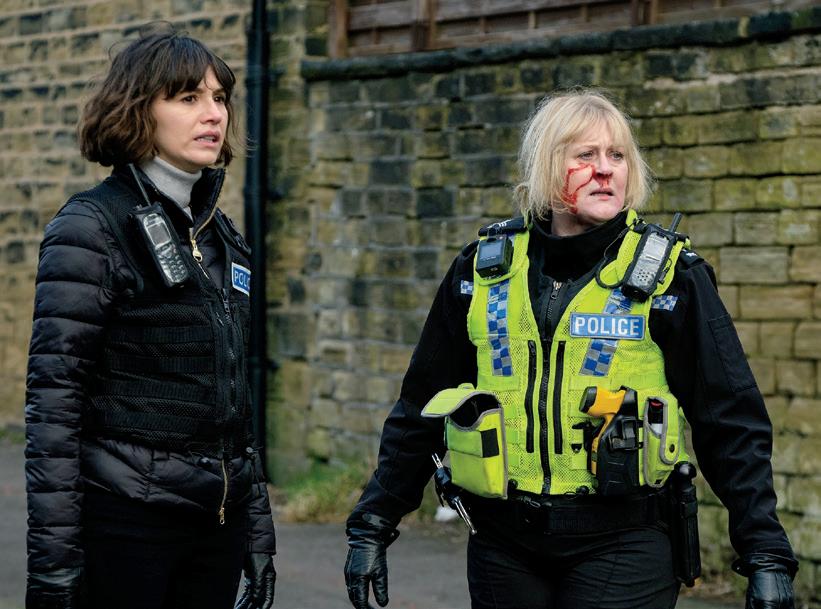
Netfix’s VP of Content for Latin America, Francisco ‘Paco’ Ramos, looks ahead to the launch of a trio of the biggest original series from the region and believes they will be a gamechanger for the local production business
BY STEWART CLARKE

1
Could the next Squid Game, Lupin or Money Heist hail from Latin America?
TV history teaches us you cannot engineer a global hit, but with three tentpole projects launching in the next few months, Netfix is stacking the odds in favor of the next worldwide watercooler show coming from the region. Each of Netfix’s big three is a local landmark, the streamer’s biggest show out of its country of origin. Or, in the case of Senna, the biggest ever from the region. This is super-premium TV, Latin America-style. To break through the clutter, everyone is looking for IP, something that will tempt an audience to sample a show. That being the case, curiosity and anticipation levels are sky high for 100 Years of Solitude, the series adaptation of Gabriel García Márquez’s magical realist masterpiece, which flmed in Colombia. Out of Argentina there is comic book adaptation The Eternaut—not as well-known globally, but held in huge esteem locally and with breakout potential. Straying from the world of adaptations, Senna still brings immediate name recognition. It will dramatize the high-octane exploits of the iconic Brazilian racing driver Ayrton Senna.
The streamer’s programming strategy is down to Francisco ‘Paco’ Ramos, Netfix’s VP of Content for Latin America. He is a former terrestrial TV exec, having been a buyer and head of programming at Spain’s Antena 3, and was also the Spanish distributor for New Line, Morgan Creek, Spyglass and Miramax movies, and then a producer.
The realities of production are such that Netfix’s upcoming launches out of Latin America, while indicative of ambition, were not engineered as a triple-header. “It was not that we said fve years ago, ‘Let's make the three series and launch them at the same time,’” says Ramos. “They all came together when they did. The three of them are hyper-complex projects and we started developing all of them before the pandemic. However, the pandemic really gave us an opportunity to dig deeper into the creative and into the path forward.”
Netfix actually got into originals locally in 2015, before Ramos joined in 2017. There has been a steady fow since, but with the abovementioned trio on the starting grid, things are
about to rev up. Given the motor-racing analogies, Senna is a good place to start.
Off to the Races
Ramos put the yards in on Senna. “When I joined Netfix, the Brazil team said, ‘We need to do this,’” he says. “We secured the rights and then I met the family. They’re extraordinary people; his sister and his niece would give me access to stuf and tell me stories, and then we would read letters. I also started reading books and watched Asif Kapadia’s documentary [also titled Senna], again.”
Showrunner Vicente Amorim has talked about the sheer size of the production. To give a sense of the scale, there were more than 14,000 extras used across the six installments, which flmed in the driver’s native Brazil as well as in Argentina, Uruguay, Northern Ireland and Monaco (remarkably, 100 Years of Solitude had even more extras—see below).
Drive to Survive has proven the appeal of Formula 1 on streaming. “For sure, it has shown that there is interest in the sport, but I feel also that the team—the producers, the writers, the two directors (Amorim and Júlia Rezende)— have been able to build a unique story about an extraordinary human being, full of resilience, full

“The talent has burst out of these shows. It's going to be extraordinary for storytelling in Latin America.”

of passion and an honesty that drove him to this never-ending desire for perfection, which I think people really will empathize with,” says Ramos.
The series stars Gabriel Leone (Ferrari) in the title role. Matt Mella (The Bureau) is Alain Prost, Senna’s arch-rival. Kaya Scodelario (The Gentlemen) plays Laura, a fctional F1 journalist. Of course, there is plenty of burning rubber, but the story of Senna the man, who tragically died at the San Marino Grand Prix in 1994, is equally gripping. “The car races are extraordinary,” says Ramos. “They turned out great and the emotional part is very powerful.”
100 Years in Two Parts
100 Years of Solitude is the frst series adaptation of the book and was sanctioned by the Garcia Márquez family. Given the fantastical multi-generational tale following the Buendía family and the founding of the mythical town of Macondo, the Colombian series producer Dynamo had its work cut out. The book is in that pantheon of classics often deemed unflmable. Garcia Márquez himself reportedly thought it could not be made into a
movie, given the time constraints of even a very long feature.
Netfix is giving it room to breathe. The streamer is telling the story over 16 episodes, split into two seasons. Ramos promises, “You’re going to see something that is completely different.” He adds, “It has its own little world, its own little tempo, its own little dynamics, and a little internal grammar.” He uses the word “little” afectionately and for color, but strictly speaking this is a project that is large in both ambition and physical scale.
Production designers Eugenio Caballero (an Oscar winner for Pan’s Labyrinth) and Bárbara Enríquez (Oscar nominated for Roma) oversaw the building of four versions of Macondo to refect the passage of time, per the story. Painstaking attention to detail was required for the desired aesthetic. Period furniture was sourced from local antique stores and other fabrics and artifacts were made by local artisans.
Alex García López (The Witcher) and Laura Mora (The Kings of the World, Colombia’s 2023 Oscar entry) share directing duties.
Netfix has one season already in the can and
after a six-month break, Season 2 will begin flming in November.
Why break it in half? Ramos explains: “If we had shot this whole thing, then we would have to wait, but also, because we found a really powerful ending at the middle of the adaptation, there is a huge payof.”
He breaks it down further. “We really needed to fgure out, structurally, thematically and tonally, how to have a very strong fnish for the frst part, and then a very powerful way to have a very strong frst episode in the second part, which has to be propulsive and has to push things forward, and not just be the ninth episode of a series.”
Comic adaptation The Eternaut rounds out the upcoming big three. On paper, it doesn’t have the same global resonance as the other two, but Netfix has high hopes for a show that Ramos says is only feasible as a series because of how the premium drama market has evolved in Lat Am. “The producers have been trying to make it for a long while, but they weren’t able to put it


together. There is something about adapting a graphic novel that is told in a strip that it makes it very difcult for the three-act structure.”
With the market for high-end drama developing in Latin America, all concerned were able to get the adaptation of the comic from Héctor Germán Oesterheld and cartoonist Francisco Solano López up and running. K&S Films is producing and Bruno Stagnaro directing. Martín M. Oesterheld, grandson of Hector, is a creative advisor.
The live-action series follows a group of people who survive a snowfall that kills millions and then have to fght a mysterious alien threat. Ramos says it is at the grounded end of the sci-f spectrum. “It looks like the real world,” he says. “It’s like Buenos Aires today—it’s not that we created Buenos Aires of the future.”
A Local Legacy
Talk of shows landing at a global level maybe misses the point. An international smash would be most welcome, but Netfix also has work to do regionally and country-by-country in Latin America. With about 49 million subs

in the region, there remains plenty of headroom for growth, which is no longer the case for the streamer in many other parts of the world as markets mature.
Local content can also be the special sauce for a platform, and that’s the point for Netfix’s Lat Am content chief. “The reaction you may have to a piece of content you love that is from another country versus a piece of content you love that is from your own country, is diferent,” says Ramos. “That doesn't mean people like one better than the other, but there is a sense of belonging and connection, and also of feeling that these stories are about you or your neighbors with the local shows.”
Ramos says Netfix has created opportunities for talent to make series that rarely existed previously outside of movie making. “People were able to make flms, but the television that they were able to make was linear and, in the classical way, was more serialized telenovela content. For sure, the long-formatted novellas are a huge and very successful business. But now you have talent saying, ‘Oh, I can tell my story in eight episodes or in 12 episodes. I get to dig deeper into characters in a seasonal arc.’ A lot of things
have started opening up for flmmakers, creators and writers.”
Netfix can rustle feathers when it gets into local production. Its entry shakes up markets and provides deep-pocketed competition for the legacy players. The U.S. company is always keen to talk up its local bona fdes. That is as true in Latin America as elsewhere across its huge footprint.
Ramos believes the legacy of these new originals is sure to be deeply felt throughout the region. “You know, the thing that is very impressive for me is that in each of these three countries where we made these, the production ecosystem has never made shows of this magnitude and at this scale before,” he says. “The talent has burst out of these shows, and there are huge learnings and experiences that they have garnered for their futures, and for the shows and movies they will go on to make in their careers. They will make shows for our competitors, which is great because they will develop and become better and better. It’s going to be extraordinary for storytelling in Latin America.”


Korean content has dominated the Asian cultural zeitgeist—and streamers’ bank balances—over recent years, so what are the top players in Southeast Asia doing to stand out among ferce regional competition?
BY SARA MERICAN
Southeast Asia content makers have had it tough in recent times. Not only was the streamer money that briefy fooded the region reduced as global cuts bit, but they’ve seen demand for Japanese and Korean content reach new heights, while the rise of streaming in India has become a major narrative across the continent. Net fix, Disney+ and Prime Video have all committed large funding pots to Asia, but the question is, how much can Southeast Asia specifcally score? Those we have spoken to in the likes of Indonesia, Thailand and Malaysia talk of the difcult economic climate and belt-tightening over production budgets. Streaming originals have been ditched and free-to-air networks are seeing TV advertising spend move to social media.
Mark Francis, Chief Content and Strategy Ofcer at Indonesia’s largest streamer, Vidio, says multiple global streaming services spending big on productions was unlikely to last. “As it turns out, paying those kinds of budget for local series only makes sense economically to one global player, not four or fve, and that one global player left is Net fix,” he adds. “That’s not to say the others won’t come back.”
Producers believe that with a downturn in commissions, the importance of bolstering development has become paramount, so that scripts and projects are ready
to go during the next funding boom—whenever that comes.
Vidio has doubled down on domestic talent. Francis, a former Warner Bros. Discovery exec, points to Indonesia’s strengths in the action and horror genres, and
cites talent like Timo Tjahjanto and Joko Anwar, who have achieved success globally. These genres are expensive to work in, which is why most stories from the space end up as flms in Indonesia. Yet, Francis has found a way to
build on the market’s appetite for Indonesian action series. “We acknowledge that action series do very well for us, but recognize the need to diversify and grow reach, so I looked at that and thought, ‘Let’s not go fnd an entirely new forest,’ but instead ask, ‘What’s the branch?’ We landed with action-comedy and action-romance as the two main threads we’re developing.”
Vidio once used to produce around 30 series in a year, the aim is now to make around 16 series annually, before eventually arriving at 18 to 22 series per year—perhaps another sign of the global realignment of television economics. Another challenge

facing the streamer is the lack of a developed, pre-existing pay-television market in Indonesia. At one end, there is a booming, active box ofce, with around 100 flms released per year. At the other end, there is an array of free-to-air television and ad-driven services, and the likes of YouTube.
“There was no established habit of consumers paying a monthly subscription fee for TV and movie entertainment until streaming came along,” says Francis. “Hence we needed to fgure out how to imbue our originals and overall content ofering with a reason to pay for it and then to scale that, which requires real commitment.” Premium sports is one answer.

Korea Path
Korea remains a north star for many in the Asian content industry—a regional peer that has ascended to global acclaim through decades of investment, nurturing of independent voices and a wealth of onscreen and ofscreen talent. The global K-pop and K-drama trends have only amplifed its cultural signifcance.
For regional streamer Viu, Korean content has long been the bedrock of its business. Acquiring overseas streaming rights and providing high-quality subtitles, often within 12 hours after broadcast, is key. “From the very beginning until now, romantic comedies have worked the best for us, but
in recent years, we also found that some other genres are doing great numbers,” says Marianne Lee, Viu’s Chief of Content Acquisition and Development.
She cites original titles such as Reborn Rich and Taxi Driver Season 2 as non-romcoms that have become the platform’s top-performing titles in the past year. “What works for Viu are the feel-good kind of dramas—fast-paced, action-oriented and what I call ‘happy entertainment’,” she says. “It’s easy-watching and you feel good after you watch the drama.”
Korean IP has also driven some of Viu’s recent original title successes in Southeast Asia. One of Viu’s top Southeast Asian original
“We acknowledge that action series do very well for us, but recognize the need to diversify and grow reach.”

titles this year is What’s Wrong with Secretary Kim, a Philippines rom-com loosely based on the 2018 popular Korean drama of the same title. Viu teamed up with legacy Philippine media conglomerate ABS-CBN to produce the series. “It broke a lot of our viewership records and also traveled outside of the Philippines,” says Lee. “It is one of the best shows for us this year, because of the viewership and the big noise level that it has created.” The series, starring Kim Chiu and Paulo Avelino, was the third adaptation made in partnership between Viu and ABS-CBN, after The Broken Marriage Vow and Flower of Evil—the latter also a Korean drama IP.
Another answer to the Southeast Asia content conundrum recent ly has been for streamers to bring indie flmmakers with track records of success on the global festival circuit into the business of making episodic series and prestige TV. Drawing on their sharp, artistic voices and ability to deliver high-production values on mid-range budgets, top indie flmmakers such as Indonesia’s Kamila Andini and Thailand’s Pen-ek Ratanaruang have made shows like Cigarette Girl and 6ixtynin9 with Net fix, among others.
Kriz Gazmen, Head of Star Cinema, the flm arm of media conglomerate ABS-CBN, emphasizes the importance of the parallel development of both the television and flm businesses. He sees series and partnerships with streamers as a way to develop ABS-CBN’s star system that can later cross over to its movie business.
Star Cinema has gone on a particularly successful box ofce run in the last two years, producing the Philippines’ all-time highest-grossing flm, Rewind, as well as other hits like Un/Happy for You. This strategy is critical especially after ABS-CBN lost its broadcasting

“We want to keep building movie stars, so we have more in the lineup and to protect our future.”
license in 2020 due to a Philippines’ National Telecommunications Commission order.
“Before the pandemic, it was easier for us to build stars,” says Gazmen. “We want to keep building movie stars, so we have more in the lineup and to protect our future. Right now, that’s the work that we do with the television side. When they are tried and tested in television and digital shows, we help them graduate to doing full-length features that Filipino
audiences will be willing to pay for. We’re not in the position to take risks and launch new faces each and every time.”
On November 13, Star Cinema will release Hello, Love, Again, the sequel to Hello, Love, Goodbye, which is the country’s second-highest grossing flm of all time at the domestic box ofce.
Singaporean flm producer and Momo Film Co co-founder Tan Si En has assessed the state of the flm and TV markets after
the pandemic. “Films are moving faster,” she says. “In places such as Vietnam, Indonesia and Malaysia, the box ofce has moved toward pre-pandemic levels. Besides the regular government funding that we know of, there are quite a few private fnanciers, individuals and production companies who are keen to explore some of these markets where the box ofce is recovering quite steadily.” In fact, we hear that content execs, commissioners and
producers alike are emphasizing the importance of f lm and television talent being developed together in the current economic climate, instead of cannibalizing each other.
Vidio’s Francis points out how the Korean f lm and television industries found success together when the right economic opportunities came along in the streaming boom. “Would Korea be where it is today without a platform like Net fix plus Squid Game coming together? Would Squid Game even exist as a domestic commission? No, I don’t think so. To get to the stage of producing premium content in Korea, that talent pool had to grow and the competition had to exist domestically, with broadcasters KBS and SBS and the Korean flm industry.”
Perhaps part of the answer lies elsewhere in Asia. Lee highlights that Viu is making a concerted push into Chinese content and IP. “Chinese content can travel pretty well outside of Chinesespeaking territories,” she says, while acknowledging that Korean content is still the “content that most of our audience look for.”
Viu execs say Chinese-language content is demonstrating similar patterns to the platform’s Korean content. The dynamic between them is best highlighted in what Lee forecasts will be one of the biggest titles that Viu has exclusive international distribution for this year, titled Family by Choice Released on October 9, the series is a Korean-language remake of an original Chinese drama titled Go Ahead. It will star Hwang In-youp, Jung Chae-yeon, Bae Hyun-sung, Choi Won-young and Choi Moo-sung.
Chinese-language content has also become another key avenue of investment for Net f ix,
with former screenwriter Maya Huang heading its eforts.
Net f ix’s Chinese-language content team operates largely in Taiwan and has partnered with government-backed agencies like the Taiwan Creative Content Agency (TAICCA) on programs and initiatives.
Jessica Kam-Engle, former head of Disney’s APAC content team and current Executive VP and Business Head of Southeast Asia at Banijay’s CreAsia Studio, says that another way forward may be taking Asian IP and formats and turning them into Englishlanguage shows. Her team is currently setting up original non-scripted and scripted shows in Thailand, Indonesia, Philippines and other parts of Asia.
“The packaging of good Asian shows to be sold as global formats, however, has been disproportionately low, mainly because of a lack of expertise or focus on this area,” says Kam-Engle. “The rise of global streaming platforms gives a window for some outstanding international content to be viewed by audiences around the world, and that was a good start. However, while there is reach, penetration is still limited.”
“There is always a limit to how far local-language content can penetrate other markets where the audience doesn’t have the viewing habit to seek them out. To go from niche to mass, the next leap to popularizing local Asian IPs is in exploiting selected ones as formats to allow for English-language or multiple-language adaptations so that they can capture the hearts of the mainstream audience.”
Korea might be having an extended moment, but Southeast Asia is ready to step up when its time comes.★




She has two seasons of Pachinko under her belt, a production company to run, and a movie adaptation of F. Scott’s Fitzgerald’s Tender is the Night in progress. The writer-producer and debuting director explains her approach to doing it all
BY STEWART CLARKE
It’s hard not to start at the end when talking to Soo Hugh as Season 2 of her extraordinary drama series Pachinko draws to a close. The Apple TV+ show follows a Korean family across four generations and takes in both historical events and family drama as the resolute Sunja moves from her home country to Japan. The denouement of the latest season is both satisfying and leaves the audience wanting more. There is still some story to be told.
Hugh and her writing team moved beyond the 500 or so pages of the eponymous Min Jin Lee bestseller upon which the series is based for parts of Season 2—notably within the strand set in late-1980s Japan. Going deeper into the Pachinko story is already top of mind. “Apple has been really generous and supportive and they’ve encouraged us to start thinking about it,” says Hugh. “The dream is three or four seasons. If the present in the show is 1989 and we leave Sunja in the past in 1951 [at the end of Season 2], then the idea was that the past and present collide: That ’51 will become ’89. That was always the big plan for the show.”
Still, Pachinko isn’t the only thing on her mind. Hugh has an overall deal with Apple and Pachinko producer Media Res along with her own label, Moonslinger, which she runs with former Universal Content Productions executive Margo Klewans. Under that banner she is working up new projects including exec producing The White Darkness with Tom Hiddleston and is now penning on the script for a movie adaptation of Tender is the Night, which will mark her feature directorial debut.
Prior to Pachinko, Hugh was on AMC series The Terror, and she says the two are companion pieces of sorts. “The Terror is about patriarchy,
brotherhood and the ways men bond and lift one another up. If it is, in some ways, a story of men and fathers and sons, Pachinko is a story of women and mothers and daughters.”
The fnal episode of Season 1 of Pachinko ends with footage of real-life interviews of Korean women who, like Sunja, moved to Japan generations ago. Although Pachinko is a work of fction, Hugh and the team were advised by historians. The stories of the prejudice and hardships Koreans faced under Japanese colonial rule, and then as migrants to Japan, aren’t regularly heard in the West. In the series, they are relayed in Sunja’s life story, which is shaped by her parents, poverty, global events and a son she has with shady and sharp-suited businessman Koh Hansu (Lee Min-ho) out of wedlock. Her eldest son, Noa, is played by a variety of actors, as is his younger brother Mozasu.
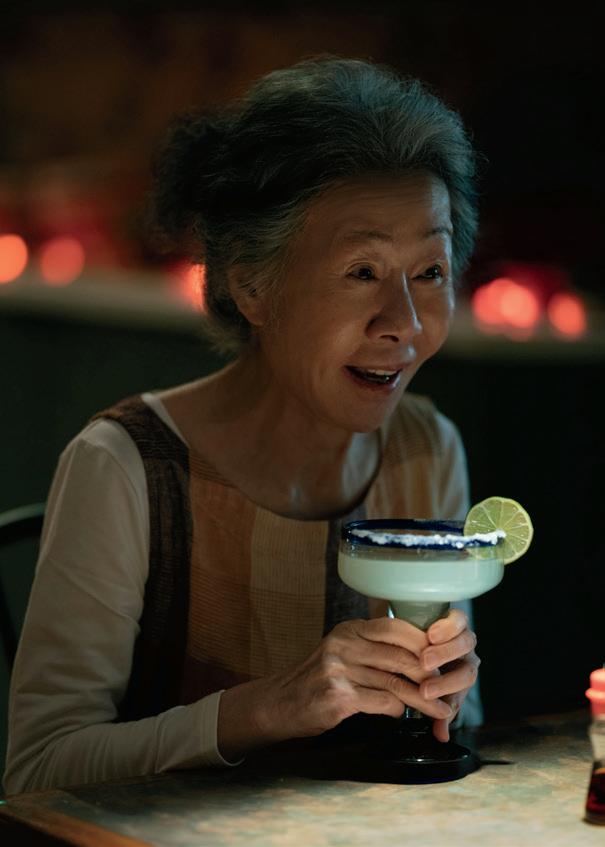
Soji Arai stars as Mozasu in his later life, and Jin Ha is his son, Solomon, a fnance whizz whose wheeling and dealing is a compelling arc. Jimmi Simpson, in a rare recurring Western role, plays Solomon’s boss, Tom Simpson, a disgraced banker put out to pasture at the Tokyo branch. The 1980s Tokyo strand also features Anna Sawai, who won the Lead Actress Emmy for her role as Toda Mariko in Shōgun. She is Naomi, a high-fying female banker in a sector dominated by men, and a character not in the book whom Hugh created for the series.
Among the many head-turning performances, it is Minha Kim as the younger Sunja, and Youn Yuh-Jung as the character in her later years, who provide the heartbeat of the series. Kim was new to acting when she landed the role, while Youn was a much-respected veteran performer, which seems ftting given
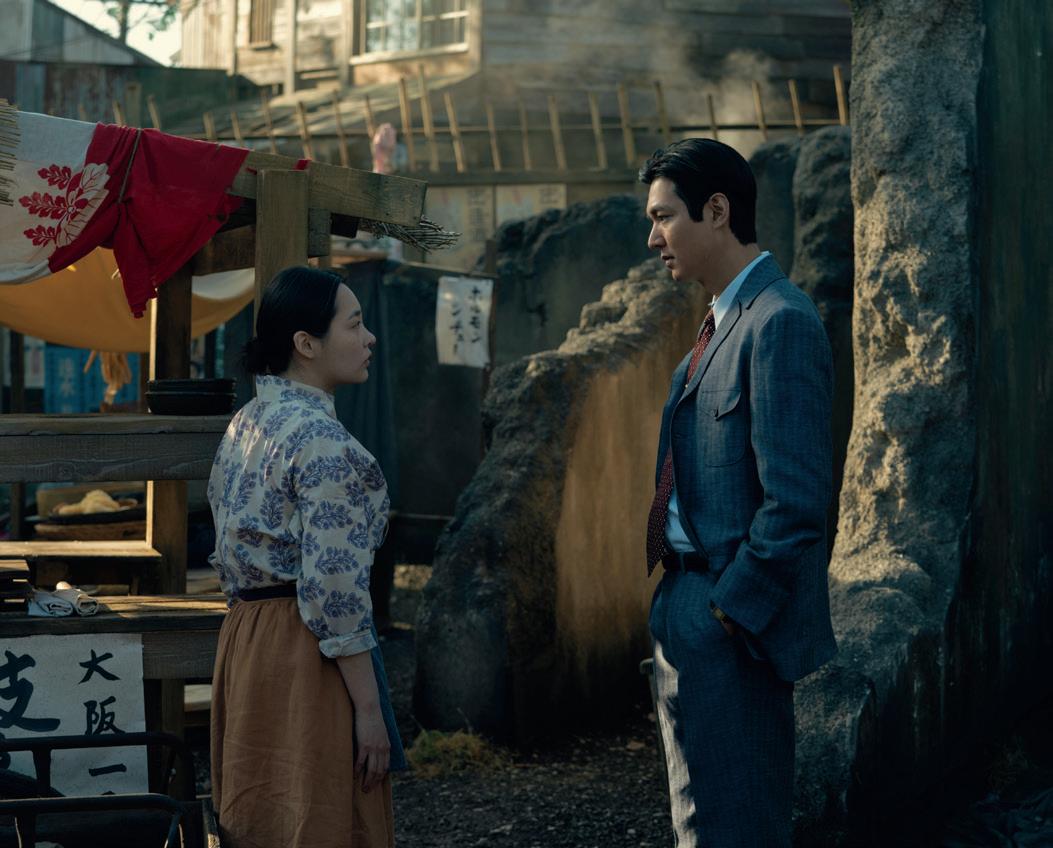


their on-screen personas. The two actors only ever met during flming while making the title sequence—more on that later.
“This was Minha’s frst thing,” says Hugh. “She had done a short flm and web stuf before Pachinko, but really, she was a novice. Then you have YJ on the other hand, and she is one of the greatest actors living right now. You have the yin and yang, but that’s Sunja. It fts the character.”
Hugh recalls seeing Kim’s audition tape. “We’d been casting for months, and I was starting to get worried because we were struggling to fnd that one character,” she says. Then a tape arrived of Kim reading a scene in which Koh Hansu, father of her child and her frst love, reveals he is married. “We were all mesmerized, but then the question was, ‘Can she redo it?’ She came back several times and each time it was diferent. At frst, I was like, ‘Wait, she didn’t play it the way she did it on tape. What happened to that performance?’ And then you realize: She’s feeling it completely diferently here. Minha is one of the most
intuitive actors I’ve ever met. When she feels, she just feels.”
Kim’s Season 1 performance is imbued with a rawness that the team were left hoping she still had heading into the second run. “She had made a movie and another TV show in-between the seasons, so I was worried. Is she going to come back to Season 2 and lose some of that innocence?” Hugh recalls. “But she really didn’t. I hope she’s going to go on and have a long, long career, and she’s going to do so many characters and have so many other roles. I just hope at the

end of it, when she looks back, that Sunja is up there for her.”
The pressure was on the whole team for the second run after the warm reception for the frst outing. In less capable hands, mapping a story that becomes more involved, spans geographies and timespans, and takes in ever more characters and arcs could make for an unwieldy production, and an overwhelming experience for the viewer. Certainly, Hugh, as creator-writer-showrunner and exec producer felt the stakes being raised.
“There was an innocence when we were making Season 1, because we had no idea what the show was, it felt like we were all jumping of a clif together. With Season 2, it felt the pressure was just there for all of us. It’s interesting to watch how diferent people deal with that.”
Coming of a multilayered project such as Pachinko, with its Season 2 fnale dropping just before MIPCOM Cannes, Hugh could be forgiven for wanting to work on something more contained. Next up is a movie adaptation of F.


Scott Fitzgerald novel Tender is the Night for Searchlight, produced by her label Moonslinger,
Chap and Putnam Pictures. She says: “I came from feature writing and in some ways it’s more challenging than TV, because in 120 pages, you have to pack in a universe, you have to pack in a life. In TV, I’m given 16 or 24 episodes to do that, so now with a feature, I feel like it’s about maximum impact writing.”
There will be an about-turn on the Pachinko creative approach where the writing spills over from the source material. Hugh reveals she will be paring back, not supplementing the story this time. “I’m not going to adapt the entire book,” she says. “It’s too unwieldy as a flm. The book takes place over a wide expanse of time and I’m actually going to do the opposite of Pachinko and just do a sliver, a part of the book.”
The novel is set on the Côte d’Azur in the jazz era. For Hugh, its messages speak to the core of all of her work. “It’s a story about three very diferent people, in some ways damaged people, who all fall in love with each other,” she says.
“The big theme of that book goes to the question that’s in everything I make: Is this it? If this is the one life that we have, whether or not you believe in an afterlife, while my feet are here on this terrestrial land, is my life good enough?”
Moonslinger will be one of the labels producing and Hugh advocates for writers getting involved at the business end of flm and TV: “Writers make great producers because the frst hump is the script,” she notes.
Accordingly, the ambition for Moonslinger is to be both writer-friendly and market-savvy.
“What helps distinguish Moonslinger is we just want to be the ones who give writers the ability to make the show they want, within the marketplace that we have; to still make shows and movies that feel like classics, that aren’t a fash in the pan and are going to stand the test of time.”
Pachinko is such a project—a timeless piece of TV and something people will come to afresh for years to come. In TV commissioner parlance, it’s less of a frework of a show and more of a bonfre, with a less explosive but more enduring glow. Longevity and awareness are interesting topics to raise with Hugh. She admits to
concerns that people don’t come to Pachinko, which is flmed in Korean and Japanese, as they label it “a heavy show with subtitles.” The reality, however, is Pachinko’s storylines are precision-tooled for a wide audience. “I love melodrama, and I don’t feel ashamed saying I write melodrama,” says Hugh.
Certainly, the themes in Pachinko are as enduring as they are universal. Hugh breaks it down: “At the heart, it’s a story about families searching for a home, depending on how you defne ‘home’. Some people defne that by what country or physical house they live in. Someone like Sunja defnes home as who she’s with— family is her home. That’s always felt like the bullseye for us: ‘What is home?’”
Given the ending of Season 2, a growing legion of fans will hope it’s not home time just yet for Pachinko ★
Many people skip the opening titles of a show, even one that they love, but Pachinko serves up a sequence you want to sit through each time.
It features unbridled dancing from the cast, against the backdrop of a pachinko arcade, spliced with real historical footage. It’s a joyous opener that somehow channels the kind of energy Christopher Walken brought to Fatboy Slim’s “Weapon of Choice” music video. Season 1 has The Grassroots’ “Let’s Live For Today” playing. Given the cast refresh,
new credits were called for in Season 2. It has “Wait A Million Years” playing, also performed by The Grassroots.
“It is the happiest day on set,” Hugh says. “It’s over a day where the main unit is shooting and we peel actors off, it’s so not organized. We don’t even know what song we’re going to use for the actual sequence at that point.
Everyone’s just playing their own songs, it’s like: “No, Soo play this,” or “Wait, let me play this.” It’s real, that’s why they’re really laughing. It’s sort of a gift for the audience.”

Content producers across the globe are in agreement that tax incentives have become almost impossible to live without
BY MAX GOLDBART
As buyers wander the vast halls of the Palais in Cannes this week taking meetings and exploring the next generation of TV shows, they will no doubt be wowed by some supremely premium content.
But there is no escaping the fact that, in 2024, fnancing a show is harder than ever. Reaching greenlight has been transformed into an ever-more complicated jigsaw. A nasty combination of the global recession, streamer cutbacks, rising costs and heightened competition
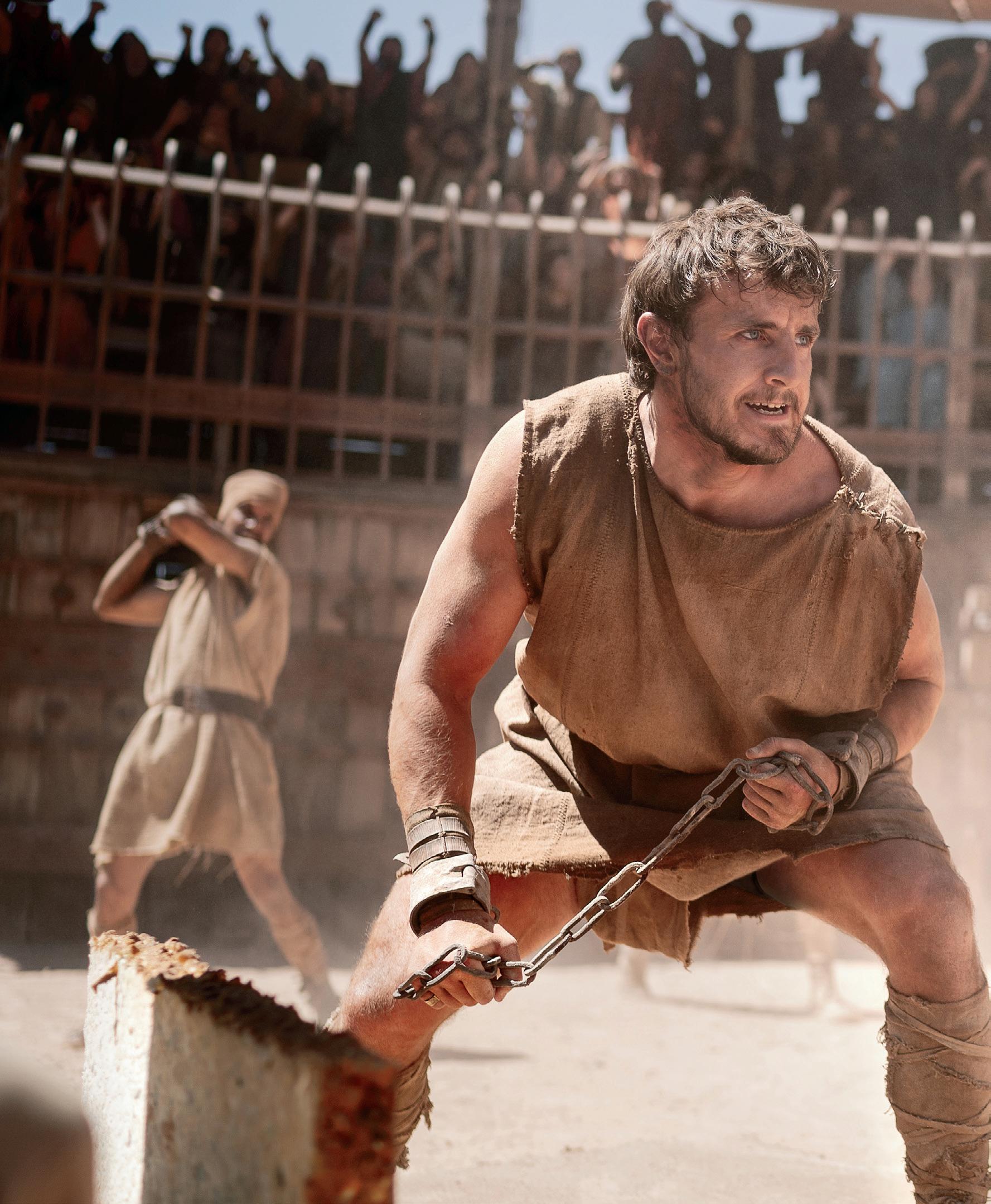
has led to a situation whereby crossing the 100% investment line can feel like threading a camel through the eye of a needle. The concept of a soft greenlight, a show that is all but there yet needs that fnal 10-20% investment, has entered common parlance.
Step forward the humble tax credit. Where once long ago, buyers could comfortably aford full tarifs, and once slightly more recently, deep-pocketed U.S. players would swoop in and complete the fnancing, today’s TV
packages are super-complex patchwork quilts, which more often than ever require a hefty chunk of cash from a rebate.
“From 2022 onwards there has been this fairly dramatic change of paradigm where U.S. platforms have been reducing the volume of productions and PSBs are not willing or able to give more money to projects,” says Fabrice Deville, who runs Beside Tax Shelter, an out ft that collects money on behalf of the thriving Belgian system. “They need quality but
have at best stable revenue, so in essence they have the same amount of money in a market that has seen a 10-20% increase [in costs] due to in fation. That’s where tax credits come in.”
Deadline has spoken to around 10 in-the-know execs for this feature—both on and of-record—and while all note that tax incentives have been crucial for years, they concur that rebates are now almost impossible to live without. Furthermore, the volume of shows relocating production to take

“Not every tax credit is equal to your neighbor's tax credit.” Gladiator II
advantage of a juicier credit has risen rapidly, they say.
Film and TV tax credits have been in operation in some form for decades and started expanding around 20 years ago as the industry globalized. Since then, the vast majority of European nations—and many others around the world from Australia to Saudi
Arabia—have introduced these systems, some sweetening them over the years.
Barely a sentence can be uttered about the thriving U.K. entertainment sector, for example, without mention of the flm and high-end TV tax credit, widely seen as the growth spark for a now-circa-£6 billion ($7.8 billion) industry that
attracts productions from all over the world.
“We have seen the impact of [tax credits] on hit series and movies on regions—whether it is Game of Thrones in Belfast or Bridgerton, which was recently quoted as contributing £275 million to the U.K. economy,” says Lyndsay Duthie, who runs the Production Guild
of Great Britain. “The infrastructure, hotel bookings, transport and eateries all beneft from a large production coming to town.”
Yet once the envy of Europe, there is at present a hefty lobby pushing to have the U.K.’s circa-25% rebate upped towards the 30-40% region, which neatly demonstrates the heightened competition, according to a U.K. legal source who works across tax credits.
As is often the case, it is the shifting American landscape that has been a catalyst for change. With credits, that impact has been two-fold. American buyers are no longer splashing out the blankcheck-era sums of yesteryear, and it is becoming harder to shoot shows in the States, with Uncle Sam’s domestic tax credit systems failing to compete favorably with smaller nations.
“The Californian industry is among those struggling the most and that is supposed to be the epicentre,” says one American indie boss, who makes shows all over the world. “Tax credits are so important. They are the reason why so many American shows and American companies are interested in shooting abroad. They just cannot aford to shoot in the States.”
Many productions have relocated to countries with favorable credits of late, such as Net fix’s Wednesday, which shifted its second season to the attractive flming location of Ireland. Streamer obligations in the EU, meanwhile, have forced
the SVODs to concentrate more spend locally. “Streamers are under pressure from shareholders not to spend money without thinking, and so tax credits help,” says Deville.
With those controlling the purse strings evaluating how to get shows made as economically as possible, producers have to be “ruthless about what makes sense for the pipeline,” adds Jamie Lynn, EVP Co-Production and Distribution at Fremantle.
“At the eleventh hour, you might have to go to a less desirable location [for a better credit],” he adds. “We're dealing with it all the time.”
Safe Haven
“Not every tax credit is equal to your neighbor’s tax credit,” Deville muses, and the realities of the fnancial landscape have in recent years led to a bun fght between territories, which are competing to have the best credits, system and ability to handle projects of scale.
“Streamers are under pressure from shareholders not to spend money without thinking, and so tax credits help.”
“You need to get that net cost down by maximizing incentives without burning too much money along the way,” says Philipp Kreuzer, the boss of Maze Pictures, who has helped with production services on the likes of Hulu’s Nine Perfect Strangers. “But there is a balance. If you do a show for a U.S. studio, you have to remember you get nothing in terms of rights.”
A common claim is that tax rebates turn nations into production services hubs, which Marc Lorber, a former Lionsgate acquisitions exec who is now a consultant, says creates a “bubble in the economy.” This, he adds, can have negative impacts on below-the-line crew if too many are brought in from abroad or local production becomes unsustainable.
Credits can range from the 20% mark to a whopping 50% in places like the Canary Islands. But while the Canaries weather is always set fare, infrastructure can sometimes struggle to keep up with demand. This could also be true for the rebate hubs of Cyprus and Hungary, which have become popular through the years.
And then there there are issus such as of qualifying spend, how much of a production needs to be completed in a given territory to earn its rebate, and the speed at which a government pays out.
On the latter, Deville says Belgium’s tax credit system is preferable because the government bankrolls before the cameras roll, guaranteeing funds for buyers and producers desperate to avert

cashfow problems. “If two countries have comparable crews but you get your money back quicker in one, well that can make a big diference,” says Fremantle’s Lynn. Deville’s Belgian out ft Beside Tax Shelter/Beside Productions has an intriguing model. The company collects around €25 million ($27.6 million) per year in a €200 million market, while also ofering local co-production services that allow foreign producers to take advantage of Beside’s knowledge of the local sector and ability to access other regional funds.
Deville has had a front row seat as Belgium has transformed from mostly taking on French projects— before France itself introduced a rebate—to becoming a center for projects from all over the world. Shows Deville’s team has recently worked on include Frank Doelger’s The Swarm and Beta Film’s Herrhausen – The Banker and The Bomb. The latter switched location from South Africa to Belgium at the last minute and Deville says his team “sees it as a tour de force, a super fun challenge to say, ‘OK this show will be on German public TV, how do we make it in Belgium?’.”
But while Belgium stays strong and stable with its credit system, some nations can f ip-fop on their tax rebates, and if there is one thing producers don’t like it is uncertainty.
This could be seen none more so than in Poland and Italy over the past year.
With the entertainment industry fatlining due to a rapid change of government, which included devolving the propaganda-infected public broadcaster, credit money

suddenly dried up in Poland, and with it local and international productions. The credit returned soon after, a drama source from the industry tells us, but the fuctuations have done damage.
In Italy, Giorgia Meloni’s rightwing regime immediately started questioning whether the credit had been too wasteful and said it would be reformed, which gave a fright to international and local producers seeking consistency in a nation that had just showed itself of to the world via HBO’s The White Lotus.
Productions were pulled or paused and only recently have banks started paying out again for a newly reformed credit, which places more emphasis on local Italian crew and cast while introducing a cap on international co-productions.
Neatly illustrating how credits can cause ructions, an experienced producer from the Italian industry describes the initial introduction of the credit more than a decade
ago as “a little industrial revolution.” But soon, this had “created a bubble, a moment of pure madness where costs had gone up so much that it became hard to produce in Italy on a budget that made sense,” he says.
While Italy steers a course for a more stable credit, it is the Mediterranean hub of Malta that has perhaps proved to be the most controversial since expanding its 40% rebate last year.
Malta has become a haven because of its dreamy year-round climate and generous rebate but there has been a backlash led by the opposition party due to the impact on local industry and cost to the taxpayer. This has come to a head with Ridley Scott’s Gladiator II, which a recent Times of Malta investigation found will secure a monumental €47M of the overall €143M paid out by the government over the past fve years. The idea of Hollywood execs lining their pockets with Maltese taxpayers’ hard-earned cash has rattled
cages, although the government says the Maltese economy gains €3 for every €1 spent in cash rebates for flm productions.
“Sometimes I see some examples of support where I think to myself that if I was a citizen of that country, I would wonder whether this is a good thing,” says a well-connected production source. Screen Malta declined to comment for this article.
An American co-pro exec, who handles credits, says “moral questions” can also dominate conversation when it comes to thinking about moving shoots to places like Saudi Arabia, which ofer generous incentives.
“Banks can be hesitant to loan, and some actors or directors have the power to say, ‘I know what we’re getting there but I don’t want to go,” he adds. “You have to appreciate that some people won’t go to [places like] Saudi Arabia for moral reasons.”
Yet there is no doubt that producers are getting more desperate to
utilize rebates, and regional funds along with the likes of European Cinema Support Fund grants have become like gold dust. More frequent now is the practice of “double dipping,” by which producers look to maximize two diferent credits on one production, according to the U.K. legal source, often producing the show in one location and completing VFX in another.
“Studios are very, very savvy about this,” adds the source. “Indies less so. They tend to go where the script takes them, but if they need to be in a hot country that looks like a seaside resort, they will probably flm in Malta.”
To balance out the bunfght, Lorber advocates for “graduated” systems, whereby bigger budget projects are handed a smaller proportional amount than the lower-budget indie fare more in need of rescuing.
Lorber’s idea has yet to be taken up. In the meantime, the sky appears to be the limit for the humble tax credit. ★



Welcome to Deadline’s The Hot Ones, our guide to some of the best television being sold at MIPCOM this year. Our editorial team has done extensive research in the run-up to the 2024 market and has handpicked a selection of the projects set to be big talking points at this year’s event in Cannes.
In between meetings and cocktail parties, you’re sure to hear whispers about the next potential global hit and The Hot Ones is here to guide you. Across the next few pages, you can read our pick of the standout shows across scripted, documentary and factual, which feature some of the biggest names in television from the top distribution players.

Length: 8 x 45’
Producers: Komplizen Serien, Studiocanal Series, Film AG, The Post Republic, WDR, ARD Degeto Network: ARD (Germany), Canal+ (France & Austria)
● What happens to a society that ditches prison? That’s the central theme running through A Better Place, a German-Franco drama that StudioCanal is bringing to the Croisette. The plot follows an ambitious mayor in the fctional Rheinstadt, Germany, who closes the correctional facility in his city and reintegrates the prisoners, promising them jobs, housing and support. However, they’re met with scorn, prejudice and rejection upon re-entry, as those behind the controversial release program scramble to make it work while the victims and their families wrestle with forgiveness and justice.
“As soon as you say the pitch, people are hooked,” says Nicolas Loock, Head of StudioCanal Series, the German production wing of France’s StudioCanal. “Everything has to be black and white at the moment, and this show takes the time to explore the consequences.”
The show taps into countrywide debates around the issues of “the best way to get justice and what to do with their jails,” adds StudioCanal Head of International Sales Chloé Marquet.
Shooting began over the summer with an ensemble cast of actors familiar to French and German audiences including Maria Hofstätter (Snow, Tatort), Steven Sowah (Concordia), Katharina Schüttler (Hello, Dogs of Berlin), Johannes Kienast (Nymphomaniac) and Richard Sammel (Spencer, The Strain). Alexander Lindh and Laurent Mercier, who met on the Serial Eyes screenwriter course that has acted as a nursery slope to so many top European scribes, wrote and created the show, with Lindh also showrunner, and Anne Zohra Berrached and Konstantin Bock the directors. StudioCanal
Series is making its German TV production debut after boarding the project following a pitch from Komplizen Serien, whose exec producer David Keitsch says A Better Place could appeal to fans of “The Wire or The Leftovers, Scandi noir and British cinema” thanks to the questions it asks about society and rehabilitation.
Komplizen Serien, the TV arm of Spencer maker Komplizen Film, had picked up the project in 2020, with StudioCanal boarding a year later. Financing was then pieced together through several local funds, co-producers and European networks, leaving StudioCanal the job of shopping the rights internationally.
Loock calls this approach a “groundbreaking business model that will help the story travel,” while Marquet says the format, returnability potential and intrigue around the premise is already attracting buyer attention. Lock this one down quickly.
Length: 6 x 60’
Producers: Lux Vide & Amazon MGM Studios Network: Prime Video (multiple territories)
●You wouldn’t necessarily associate Grey’s Anatomy star Jesse Williams and EmmyWinning Fargo and Breaking Bad director Adam Bernstein with an Italian series set in a hotel, but Costiera is refective of where the global TV landscape currently fnds itself.

Set to comprise a big part of distributor Fremantle’s scripted slate in Cannes, Costiera brings together some seriously buzzy talent via a high-end streamer series produced by a veteran Italian producer and with plenty of rights up for grabs.
Landing Williams, who made his name playing Dr. Jackson Avery in ABC’s Grey’s Anatomy, was quite the coup. He plays Daniel De Luca, a half-Italian former U.S. Marine who returns to Italy as a fxer in one of the world’s most luxurious hotels, located on the spectacular coastline of Positano. Shortly after De Luca starts his post, one of the owner’s daughters disappears, and it is up to him to lead the charge in solving the case.
Combining White Lotus-esque images with more than a touch of fun thriller, Costiera, says Jens Richter, Fremantle’s CEO of Commercial and International, is “the kind of show the market has been waiting for.”
“It’s no secret that entertaining shows are in demand during these diffcult times,” Richter adds. “This is a show that takes

you into a world that maybe you have seen before, but never to this extent.”
Richter hails the “beautiful” Italian backdrop, coupled with a humorous, family-friendly, fastpaced tone. He also celebrates the contributions of Bernstein (“He is a talent to be mentioned”) and Williams too, but rejects the notion that bringing Americanstyle English-language shows to Italy will do damage to local, Italian-language stories. Local broadcaster Rai, Richter points out, has been making Englishlanguage shows for years, and Luca Bernabei’s Lux Vide has been behind many. So far, Fremantle has been “going out slowly” with Costiera, but Richter says it is set for a splash at MIPCOM when chats with buyers will begin in earnest. Most of the world is up for grabs, and Richter cites the U.S. and Germany as territories ripe for exploration via the modern model that sees streamers only taking rights in a few nations. “In this beautiful new world, streamers and local broadcasters are looking for more similar shows than ever


before to address mainstream audiences, and Costiera sits well within these worlds,” says Richter.
ESCAPADE MEDIA
Length: 6 x 60’
Producers: AR Content, Big Dreams Entertainment, Storyfrst Network: TNT (U.S.)
● CIA analyst John Nixon was the frst American to positively identify and interrogate Saddam Hussein in the wake of the ill-fated invasion of Iraq. Based on Nixon’s book of the same name, Debriefng the President is a limited series that unpacks his story about his time spent with the former Iraqi leader, which provided a new perspective on the military action and its consequences.
A production team including Alexander Rodnyansky (Leviathan) and Leslie Greif (Hatfelds & McCoys) put the project together. In the U.S., it will play in 2025 on TNT and its greenlight marked the cable net’s frst original scripted order after the Warner Bros.-Discovery merger back in 2022. Pitching the story as Zero Dark Thirty meets Frost/Nixon, Australia-based sales house Escapade Media, which has a distribution deal with series producer Storyfrst, kicks off international sales at MIPCOM.
“This action/thriller series, which is based on real-world events, offers the market a unique and commercial offering, as we discover what one of the world’s most infamous dictators was really like,” says Escapade Managing Director and founder Natalie Lawley.
In a crowded market, having established IP helps and so
does name talent. In this case the latter is Joel Kinnaman, who plays Nixon. The actor has credits for the likes of Swedish flm Easy Money, AMC drama The Killing, the 2014 RoboCop remake and as Rick Flag in the Suicide Squad movies. Since 2019, he has starred in the Apple TV+ space drama For All Mankind
The contemporary echoes of the Iraq War also mean the subject matter feels relevant. “This series will resonate with today’s audiences because we didn’t really know what actually happened to Saddam Hussein,” says Lawley. “With the release of the actual CIA fles, the world can now have a better picture of events. In addition, the Iraq War remains an incredibly controversial period in history and still very much in everyone’s mind, especially as tensions in the Middle East continue to intensify.”
Lawley adds that the limited series format allows buyers to build an event around a show that has contained costs. “It is also a manageable investment by the client, which is very appealing as global budgets are being reduced.”
YES STUDIOS
Length: 10x60’
Producer: Eight Productions Network: yes TV
●Night Therapy follows Louie, an Arab-Israeli psychologist played by Yousef Sweid who is struggling to raise two kids after the suicide of his Jewish-Israeli wife. He decides to shift his practice to receive patients at night. The series shows the ensuing impact on Louie and family as well as the stories that unfold during late clinic hours, including
fashback scenes where he is an unseen observer within his patients’ backstories.
The drama series, from Raanan Caspi, combines scenes of therapy sessions that were penned with the input of practicing psychologists with storylines from Louie’s personal life. Shira Haas (Captain America) stars as a patient. The Unorthodox star won the Special Jury Prize for her performance at this year's Golden Nymph Awards in Monte Carlo. Lucy Ayoub, Yaakov Zada Daniel and Firas Nassar, all of whom have starred in the hit series Fauda, also appear. Louie’s patients include a doctor, a rabbi, a tech geek and a drug dealer, and all of them are recurring characters in the series.
The conceit of a therapist opening his doors late at night is a gateway to various after-hours stories. “Everything kind of calms down, there are no phones or emails, there aren’t any other distractions at night,” says Sharon Levi, Managing Director of yes Studios, which is selling the show. “Everyone’s kind of done for the day, and that’s where all your thoughts come up and you refect, that’s what caught me when I read it.”
Israel has pedigree with therapy-based drama. HBO’s In Treatment was based on HOT3’s BeTipul, which has been widely adapted. “It’s over 15 years now since that frst came out, and it was something very innovative, something very new,” Levi says. “Night Therapy is like the evolution of that on so many levels. It’s not only about therapy sessions it’s about Louie’s story and how he’s dealing with this new reality that fell upon him.”
The hope is to spawn local versions of Night Therapy. Levi says: “There are so many unique selling points; the therapy sessions, the story, the therapist and what happened to him and his family, the fashback scenes. All of these elements create a very strong format that has the ability to travel.”
Length: 11 x 60’
Producers: Serendipity Point Films, Twin Media, HG Media, MR Film and Beta Film Networks: ORF (Austria), TV2 (Hungary)
●Beta Film will stage the world premiere of Rise of the Raven at MIPCOM, giving the Cannes crowd the frst look at a drama series billed as one of the biggest ever out of Europe. Set in the 15th Century, it tells the epic tale of fearless Hungarian army commander János Hunyadi (Kádár L. Gellért) and the efforts he led to repel the better equipped and more numerous invading Ottoman forces. Torn between family and duty, Hunyadi reshapes the history of the continent.
“This is one of the biggest productions out of Europe, led by acclaimed Hollywood producer and Hungary native Robert Lantos,” says Oliver Bachert, Beta Film’s Chief Distribution Offcer, when quizzed on what will make the series stand out in a very crowded market. “The story is unique. It is of great signifcance for European history but has not been adapted for TV before.” Hungary-born and
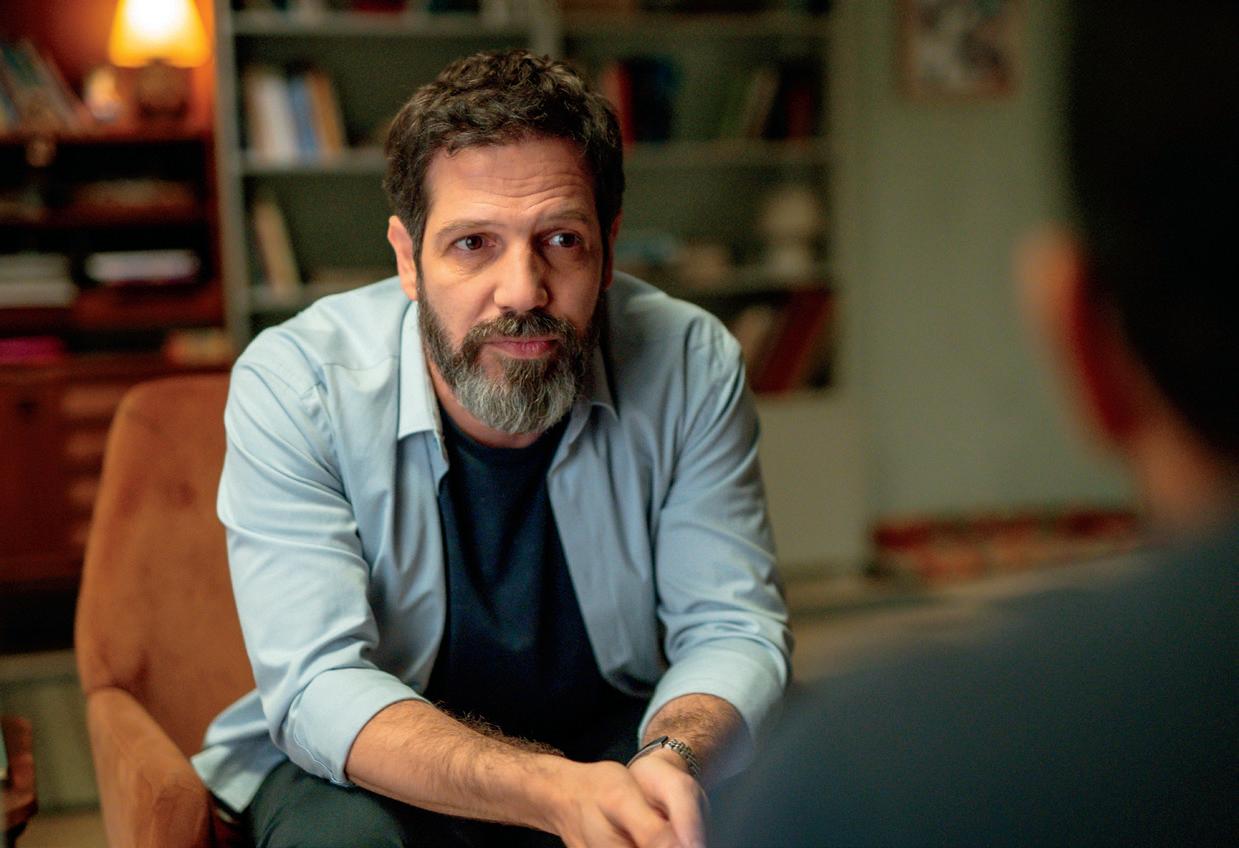


Canada-based Lantos (Eastern Promises) will be attending the MIPCOM premiere in the famed Grand Auditorium.
Beta has kept buyers in the loop as the series came together, with casting and production updates throughout the process. It is banking that there is an epic appetite for big-ticket period drama this year.
“There has been a steady fow of big period projects being successfully launched over the last years,” says Bachert. “That indicates a certain demand from audiences all over the world for epic historical or medieval tales: Shögun most recently, but also the big HBO period dramas.

“We have already got feedback from clients, who are eager to see more of Rise of the Raven, which tells us that buyers are looking to these types of projects.”
The show is in the last stages of post, and Bachert reports there are “talks with international and pan-regional partners” ongoing. He adds that it could play on free TV or as an SVOD.
“Like Shögun, Rise of the Raven has the potential to generate a huge online fandom and on the other hand could be the primetime TV event Game of Thrones was, which the audience looks forward to on a weekly basis,” says Bachert. “Such epic tales draw audiences worldwide, in today’s world this can be online, on TV or even both.”
FIFTH SEASON
Length: 6 x 60’
Producer: Hawco Productions
Network: CBC (Canada)
●Our MIPCOM Hot Ones have highlighted the content market’s current penchant for a procedural and Saint Pierre grabs
the award for the cop show in the most remote location.
The CBC drama, which features a cast of Joséphine Jobert, James Purefoy and Allan Hawco, the latter of whom also writes and produces, could be a big seller for Fifth Season.
Fifth Season sales execs are unapologetic about the opportunity for traditional procedurals.
“We’re thrilled about this one because it seems to be skating to where the puck is going,” says Travis Webb, SVP, Americas TV Distribution. “This is what buyers are looking for and is what’s in demand: An elevated procedural that feels light and blue sky.”
However, Webb stresses that Saint Pierre is no “prestigural”, and takes a “case of the week” approach, diffused with “fun and light-hearted humor.”
He says buyers have less appetite for limited series and procedurals have been able to swoop in. “Some streamers still want [limited] but you just put so much effort and marketing dollar into launching something in a very crowded market that has limited or no chance of return,” he adds.
Set on a beautiful, tiny island
off Newfoundland, Saint Pierre follows Inspector Donny ‘Fitz’ Fitzpatrick (Hawco), exiled after probing a local politician’s corruption. His arrival disrupts Deputy Chief Geneviève ‘Arch’ Archambault (Joubert), a Parisian with her own reasons for being on the island. Despite initial distrust, Fitz and Arch work together to solve crimes in a place where the serene exterior hides signifcant criminal activity.
Sex Education’s Purefoy is the frst season’s villain and brings some serious star power to the proceedings alongside Canadian darling Hawco and Joubert, who will be familiar to fellow procedural fans. She plays Sergeant Florence Cassell in Death in Paradise.
The setting being a character in itself is an oft-delivered cliché, but it resonates with Saint Pierre. The island can only be accessed via a 90-minute ferry from a nearby island or nine-hour fight from Paris. Webb says, “The only people there are either wealthy, retired or have something to hide.”
Sales will launch at MIPCOM and Webb, who used to work for Netfix, says French-speaking territories will be a natural
buyer, along with other nations in Western Europe and in Latin American territories.
Length: 8 x 60’
Producer: Night Train Media, Zero Gravity, Submarine Network: Videoland (Netherlands), Streamz (Belgium)
● Safe Harbor is easily one of the buzziest scripted packages hitting the market. Consider the constituent parts: a cast led by Game of Thrones pair Alfe Allen and Jack Gleeson, Peaky Blinders’ Charlie Murphy, Irish acting icon Colm Meaney and rising star Martijn Lakemeier; the production companies behind BBC/Netfix drama Lockerbie and The Kollective; all tied together with a creative vision from Ozark co-creator Mark Williams.
Night Train Media-owned distributor Eccho Rights will be taking the series, which is in post-production, to the Palais des Festivals as its key launch, with a premiere screening planned for day one along with an exclusive drinks event featuring the cast.
Safe Harbor follows hacker Tobias (Allen) and his ambitious best friend Marco (Lakemeier), who are plucked from obscurity and plunged headfrst into the middle of an Irish mob operating from the crime-ridden port city of Rotterdam. Sloane (Murphy) and her brother Farrell (Gleeson), whose father (Meaney) is the crime family patriarch, lead the operation out of the Netherlands, and are demanding Tobias and Marco bypass the harbor’s systems to secure safe passage for drug shipments.
“What Mark Williams has done really well is apply the themes that worked for Ozark—family and what you would do to protect it,” says Adam Barth, Eccho Rights Director of Co-Productions and Acquisitions. “This is about found family and friendship groups, but at the heart it’s about a core group coming together and realizing that if they are to survive, they need to rely on each other— though that trust isn’t there.”


The thriller, made for Dutch streamer Videoland and Belgium’s Streamz, is a true European co-production, with production taking place in Rotterdam, Belgium and Ireland. Director is Arne Toonen (Amsterdam Vice) and the producers hail from the U.S., U.K./Germany and the Netherlands. Creative Europe, Screen Flanders and the Netherlands Film Fund have all contributed to the budget. Barth says the show fulflls buyer demand for a male-skewing action drama, adding: “This is a European answer to what U.S. streamers are pushing, high octane and explosive, but with the American pacing that Mark brings.”
However, beyond that, Barth says the inclusion of Murphy’s character—a conficted single mother fnding her place in a world of tough men—means there is “heart” that will attract more co-viewing.
He adds that those who have screened the pilot already have been “incredibly supportive”, and pays tribute to the selling power of Williams. “To be able to say it’s from the co-creator of Ozark is an automatic stamp of approval.”
Kanal D
Length: 17 x 140’
Producer: BKM
Network: Kanal D (Turkey)
●In Secret of Pearls, the latest drama out of Turkey’s famed scripted landscape, Azem (Yılmaz Erdoğan)’s life changes when he is sent to prison for killing his wife, although everything is not as it seems. Upon being released, his only goal is to be reunited with his two children.
A teacher by profession, he
is forbidden from plying his trade in schools because of his criminal record, but he starts giving lessons under an assumed name and meets Piraye, the mother of a rich student he is giving lessons to, and there is a mutual attraction. He also meets a young dancer, Dilber, and is torn between the two women. Meanwhile, the effort to fnd his kids, who have grown up in different families, continues as he seeks a reunion and to make up for lost time.
Although containing familiar themes of love, betrayal and intrigue that are beloved by Turkish drama fans, having renowned actor, poet and flmmaker Erdoğan attached means this is something different from the norm.
“Secret of Pearls offers a unique dynamic and storytelling approach, distinct from traditional Turkish dramas,” says Elif Tatoğlu, Distribution Strategy and Sales Director at Kanal D, which is bringing the series to market and will be looking for additional sales at MIPCOM.
“Yılmaz Erdoğan's infuence is evident in the deep and intimate dialogue between characters, adding a rich emotional layer to the narrative. The production quality is top-notch, with Erdoğan personally overseeing all aspects, paying meticulous attention to every detail. His involvement elevates the series to a new level.”
On Kanal D in Turkey, the show was a hit, cleaning up as the top drama in its Thursday slot and generating huge buzz on social. Kanal D is shopping the fnished series and format. The good news for buyers of fnished tape and Turkish drama superfans alike is that a second season has already been greenlit.
“Secret of Pearls has enormous potential to attract a broad audience, particularly those looking for fresh and diverse stories,” says Tatoğlu. “While its departure from classical Turkish drama might seem like a challenge, we see it as a strength that has already resonated very well in the domestic market.”
LIONSGATE
Length: 6 x 60’
Producer: Lionsgate Television Network: Starz (U.S.)
● Spartacus is back, and it’s posing a rather fascinating ‘what if?’ question. Spoiler ahead: the return of one of Starz’s splashiest tentpoles begins with the idea that Ashur, played by fan favorite Nick E. Tarabay, did not die on Mount Vesuvius all those years ago at the end of the Vengeance spinoff. What if instead he had been gifted the gladiator school once owned by Batiatus in return for aiding the Romans in killing Spartacus and putting an end to the slave rebellion? It is a tantalizing concept.
Production on Spartacus: House of Ashur is well underway in New Zealand and original showrunner Steven S. DeKnight is back in the saddle to keep things stable. The main cast includes a return for the iconic Lucy Lawless, Graham McTavish (The Witcher), Tenika Davis (Jupiter’s Legacy), Jamaica Vaughan (Home and Away), Ivana Baquero (Pan’s Labyrinth), Jordi Webber (Choose Love), Claudia Black (The Nevers), India Shaw-Smith (The Pines Still Whisper) and Leigh Gill (Joker). Agapy Kapouranis, President of International Television and Digital Distribution at Lionsgate
Television, says 10 years on from the end of the previous series, now is the perfect time to return to the franchise, as she mulls how Starz can fnd a new generation of fans while delighting the established ones.
“This was something that was always on the radar,” she says. “The auspices are all the same. This is ‘swords and sandals’ content and there has always been an audience for it.”
While retaining its core, Kapouranis says House of Ashur has evolved with the times and places female characters such as Achillia, a female gladiator driven to surpass her male counterparts, who is played by Davis, front and center.
She rejects the notion that buyers are overly willing to return to existing franchises at present and says “good quality” wins out.
A House of Ashur sizzle will be shown at MIPCOM and Kapouranis says interest has been fooding in from buyers in Western Europe, Asia and Latin America. The previous Spartacus shows,
she explains, which aired in the early part of the last decade, have remained some of Lionsgate’s best sellers internationally for the past few years.
“This is just the content that people like to program,” she adds. “It’s men fghting with swords and great bodies, so it’s historical, everyone is good looking, and it’s sexy and appealing.”
CINEFLIX RIGHTS
Length: 6 x 60’
Producer: Magical Society Network: BBC (U.K.)
●There is no better way of elevating a crime series than having double Academy Award-winning icon Hans Zimmer compose the music. Adapted from the A A Dhand novels, the BBC’s Virdee has done just that, and it will be looking to make a splash at MIPCOM as it leads Cinefix Rights’ slate.
James Durie, who runs scripted


Virdee
sales for Cinefix, says Virdee stylizes its Bradford location in the northern English county of Yorkshire, turning it into something of a Gotham City.
“We pitched this as an elevated series,” he says. “We didn’t just want to depict a U.K. town, but discussed this concept of Gotham, and who brings that iconic theatrical voice better than Hans Zimmer?”
Starring Staz Nair (Rebel Moon), Virdee follows the eponymous cop, who has been disowned by his Sikh family for marrying a Muslim, Saima (Aysha Kala).
Harry struggles with the abandonment and now with his young son, Aaron, growing up and asking questions, thinks it might be time to attempt to reunite with his family. However, his personal life turns to chaos and soon he must hunt down a serial killer targeting the Asian community.
The show conjures images of the riots that targeted the U.K.’s South Asian community in August, but Durie says Virdee is “a piece of entertainment written a long time ago, and we stick very closely to the books.”
Durie says Dhand’s books have always been ripe for TV adaptations, with three key elements jumping out from the scripts.
“At its core you’ve got investigative crime, then it’s a family drama and then there is this look at gangland culture that sits alongside,” he adds. “These three stories intertwine with each other and are allowed to breathe.”
Nair and Kala, meanwhile, bring “empathy” and “vulnerability” to their characters, which has further elevated the screen version, he adds.
Durie praises Dhand for being heavily involved with the marketing of the show, which helps with buyer chats. A number of pre-sales have already been struck and Durie says interest has rushed in from unexpected places as well.
“A BBC crime show has a sales path that you could plot on a graph, so that is where the main interest comes from,” he adds. “But intriguingly, we have found that interest has come from other places, I think because this is quite unique.”

ALL3MEDIA INTERNATIONAL
Length: 12 x 60’
Producer: Studio Lambert
Network: USA Network (U.S.)
●The Anonymous is a very modern competition format. Conjuring elements of Studio Lambert hits The Circle and The Traitors while speaking to our social media-driven culture, the show, which launched earlier this year on USA Network, sees players living together, competing in challenges and forming in-person alliances.
Where it differs from rivals is in what happens next. At key moments, contestants have the power to communicate with each other anonymously, and they can use that anonymity to say and do whatever it takes to keep themselves safe in the game.
“This exists in two worlds,” says Nick Smith, All3Media International’s EVP Formats & Licensing. “I could have been your best friend all day, but then throw you under the bus. It refects how we have public personas but so many of us comment online anonymously, and the reason we do that is that we don’t want to
experience any of the negativity that comes from people knowing what we truly believe.”
Smith compares The Anonymous in scope to The Circle—the Channel 4 and Netfix series—but says it pushes the envelope further by allowing players to meet and interact. It also has plenty in common with The Traitors, but at times it can feel as if everyone in the game is a ‘traitor’, which ups the stakes, he adds.
Episodes have already aired on the USA Network. The frst three installments were dropped simultaneously—sparking an “interesting reaction on X,” according to Smith—and they were subsequently given plenty of repeat time across other NBC channels before episodes dropped on streamer Peacock a week after the linear launch. The fnal episode airs this week.
Smith says All3Media International held back on chatting to buyers until The Anonymous had launched in the States, partly so the distributor “could do deals with those who had fallen in love with the show and not just because it is produced by Studio Lambert and is a U.S. commission.”
But informal interest has been

mounting, he adds, particularly from buyers who liked The Circle but were frustrated that Netfix swallowed up the rights globally.
Smith says The Anonymous’ focus can be tilted to suit different territory requirements. He gives the examples of it potentially being more social strategy-focused in the Nordics, or amping up the reality and drama in Spain.
BBC STUDIOS
Length: 25 x 45’
Producer: BBC Studios Network: BBC One (U.K.)
●In a troubled buyers’ market that is witnessing the slow death of mid-range programming, quiz and gameshows are having a bit of a moment, the sellers behind new BBC show The Answer Run tell us.
It’s no secret that buyers around the world are eschewing mid-budget shows, pivoting focus to “fewer, bigger, better” premium offerings, while buttressing schedules with high-volume, cost-effective fare.
In steps The Answer Run. The latest quiz show from the team behind The 1% Club and The Weakest Link is a fun, play-along offering that can be made, if required, on a shoestring.
“Schedules are challenged at the moment but statistically gameshows are the most successful formats,” says André Renaud, Senior VP of Global Format Sales at BBC Studios, who is set to move to Warner Bros. International Television Production. “The idea of being able to flm four episodes a day isn’t something that would

be ignored by a commissioner. Getting ideas over the line is harder, but in this sphere, buyers are defnitely looking at the ones that are much easier to get into the schedules.”
The Answer Run has slotted into the BBC’s late afternoon schedule like a glove, regularly attracting more than 1 million viewers as it attempts to compete with big ITV daytime beasts Tipping Point and The Chase.
Hosted by Jason Manford, The Answer Run sees three teams battle it out for a cash prize. They are given answers and need to sort the questions into the correct answer to bank the cash, all in a very short space of time as the clock ticks.
“The best quizzes are the ones with a simple premise,” says Sumi Connock, Creative Director of Formats at BBC Studios. “That moment of panic is exciting. The Answer Run is cost effective, we give away a decent amount of money and you have different mechanics in the opening round.” Sales will launch at MIPCOM Cannes, and the team is hoping The Answer Run can replicate the recent success of shows such as The Weakest Link, which is currently having a serious renaissance and is now in more than 45 territories.
“These are stripped shows that keep a heartland audience coming to the channel and that is why they work,” concludes Connock.
WARNER BROS. INTERNATIONAL TELEVISION PRODUCTION
Length: 1 x 90’ / 5 x 60’
Producer: Warner Horizon Unscripted Television Networks: Food Network, Max (U.S.)
● Harry Potter: Wizards of Baking aims to cast a spell over fans of both cooking shows and the popular book and flm property. The series is for Food Network and Max in the U.S., and their corporate stablemate, Warner Bros. International Television Production (WBITVP), is selling the fnished show and format.

Harry Potter: Wizards of Baking was flmed against the backdrop of Warner Bros Studios Tour in the U.K. James and Oliver Phelps, famous for their portrayals of Fred and George Weasley in the Harry Potter flms, are the hosts and other stars from the movies will drop by during episodes. Chefs Carla Hall and Jozef Youssef judge the Potter-inspired baked goods on the show, with professional chefs from different countries competing to turn out the most magical creation.
“Harry Potter is a world of magical, fantastic celebration and here was the idea for something that recognized the role of food and meals and events in the Harry Potter world,” says Andrew Zein, EVP, Creative, Format Development and Sales at WBITVP. “You obviously had family dinners, you had the Great Hall and you had the students feasting, so there was already this connection between food and Harry Potter. From the moment you hear that theme tune in this series and the camera pans in on Hogwarts, you're in that space.”
He adds: “You've got the huge kitchen where the contestants are preparing food, and everything is presented on a set that relates to the challenge in that particular episode, whether it's Gringotts Bank or Dumbledore’s study, or on Platform 9¾.”
Local versions of the show could be shot at the Potter tour venue in the U.K. Zein notes there is also one in Japan that could service
Asian buyers. Given the premium IP, the production values of the U.S. show are understandably high, which would need to be the same with any local formatted versions, meaning the sales effort will likely be focused on the larger TV territories.
Buyers will get a taste of the baking show at MIPCOM. “The strengths are it is instantly recognizable, and it’s immediately apparent it can be made as a TV event,” Zein says. “Your audience is going to know what it is and buyers understand the job it would do in their schedules. We think it is a special treat.”
Length: 11 x 60’
Producer: NRK
Broadcaster: NRK (Norway)
●Take 10 young people who excel in a feld such as athletics or dance or MMA or have physically tough jobs such as fshing or frefghting, remove
their creature comforts and task them with rock-hard trials on a disused oil rig, and you have Nation’s Toughest. The series has been a hit on Norway’s NRK and now formats specialist Lineup Industries is bringing it to the international market.
The contestants are selected for their competitive instincts. They are there purely to win and prove themselves while also embarking on a journey of personal growth and enjoying the camaraderie of being with similarly focused individuals. To ramp up the challenge, those taking part have their social media and devices removed—rendering them effectively off-grid. Many of the participants have not had it easy, and viewers see their stories unfold across the series.
The NRK series was set on an oil rig, but Lineup says it could also be another industrial building or location—ideally one that is a little scary, such as a bunker or old military base. The challenges have a gritty urban feel and include a relay across factory roofs, scaling a

40-meter silo on rope ladders and becoming “smoke divers” who locate items in boiling hot, smoke-flled environments.
In Norway, the show’s following has grown over its fve seasons and Season 6 is in production. NRK commissions for digital frst and the numbers for the show on its on-demand service have stacked up nicely. In the most recent run, more viewers watched the fnal installment than the frst episode. “We can see that the Norwegian version is also doing really well in Sweden, where it airs on SVT proving its wider appeal,” says Lineup co-founder Julian Curtis.
“Nation’s Toughest has excelled in a crowded market for fve years, growing its audience with every season,” he adds. “Over the years the show has adapted and innovated to the audience feedback and data, moving to ‘the rig’, which has become an iconic integral part of the show. The data has also driven the casting, which has become a rigorous and detailed process.”
Local versions could be produced in the buyer’s home territory, or on the original rig. “Coupled to the fact it’s affordable, another of the key things we’re offering to the market is that we can now also offer the location,” Curtis explains. “While not a condition, it does mean everyone else can beneft from both a low-cost and high-impact location.”
ITV STUDIOS
Length: 6 x 60’
Producer: Plimsoll Productions Network: ITV (U.K.)
●Iconic Spielberg movie Jaws turns 50 next year and networks around the world will be putting plenty of thought around how content about the cinema world’s most famous shark can bite into their schedules.
Enter Shark! Celebrity Infested Waters, an imaginative format from Tiny World producer Plimsoll Productions that mixes factual entertainment with good

old-fashioned formatted fun and will debut on U.K. net ITV next year.
“Jaws is a helpful marketing tool for any local broadcaster that is looking to make local versions of our show,” says Andrea Jackson, Plimsoll’s Creative Director of Factual Entertainment. “That 50-year anniversary speaks to the enduring fascination we have with sharks. It has left a stamp on so many of us.”
In the series, celebrities come face to face with nature’s most terrifying underwater predators. They travel to the Bahamas where they partake in several challenges, concluding with an up-close run-off with a bigger, more terrifying, species of shark.
While there is plenty of entertainment attached to watching your favourite celebrity cross paths with one of the world’s most dangerous and revered creatures, Plimsoll, which is owned by ITV Studios, has used the opportunity to set out its credentials in combining entertainment with educational fact-ent, which Jackson calls “wildlife-plus”.
“We looked at our natural history audience and thought that in a different market we could turn this into a unique selling point,” adds Jackson.
With this in mind, Celebrity Infested Waters showcases sharks in a different light, as viewers are given the opportunity to learn about the creatures and the “huge service” they provide to the ecosystem, according to Plimsoll’s factual entertainment boss, Karen Plumb.
“The fear of sharks and the need to redress misunderstandings
is something globally relevant and we have had a really strong response to this idea,” she says.
Cameras started rolling a few weeks back following a lengthy casting call. At MIPCOM, ITV Studios will be selling the show as a format that can be co-produced with Plimsoll in what has now become the production hub-cum-ocean of the Bahamas location where the original is being flmed—described by Plumb as a “turnkey solution”. A U.S. deal is close, we are told.
And while the entertainment market remains “depressed”,
Jackson believes Celebrity Infested Waters is perfect for buyers interested in chasing premium, noisy series that are “braver and tell a message”.
Buyers at MIPCOM may be heard screaming from across the Croisette: “We’re gonna need a bigger schedule.”
BANIJAY
Length: 2 x 185’
Producer: Endemol Shine Germany (Germany) Network: RTL
●The Paris Olympics and Paralympics were a resounding global success, drawing billions to TV screens and reminding people just how far the limits of human endeavor can be stretched. Banijay Entertainment is hoping some of that golden glow will rub off on Three Are the Champions, a key format launch at MIPCOM Cannes.
The format sees former Olympics winners, world record holders and other physical champions

going head-to-head with a trio of celebrities, who strive to use their team dynamic in an attempt to outperform them.
“The Olympics drive emotion and create atmosphere around the world,” says Endemol Shine Germany Managing Director Fabien Tobias, who created the program for RTL. “That is creating momentum for our idea.”
The teams of champions and celebrities compete in a variety of physical and mental challenges, with some involving animals, children and crazy stunts. “It is great for primetime on a Saturday evening,” says Tobias. “When you play on RTL in that slot, the audience has to be very broad. You have to conquer the mainstream, and you can’t win with just the niche.”
The show achieved those targets, taking majority shares of 14-59s (now the standard measurement demo in Germany) and a stronger than expected female share. Episode 2 even increased Episode 1’s 13% share by 1.6%—an unusual and promising stat. “We won in every important feld,” says Tobias.
While RTL supersized the show, and its budget, Tobias and Banijay are framing Three Are the Champions as a “scalable” format. “In Germany, it was absolutely the right thing to do, as we have to compete with big shows to achieve the audience— we few in champions from around the world,” says Tobias. “But you could scale it down to an hour, which changes the cost completely, and you could do smaller challenges indoors that are great entertainment and lower cost.”
That will be the selling point on the Croisette, and Banijay is hoping to attract networks who have seen the likes of Ninja Warrior and the Gladiators revival fourish in the U.K.
Tobias says the key to unlocking the format is in the celebrity casting. In Germany, that was RTL star chef and TV host Tim Mälzer, social media personality and entertainer Jens ‘Knossi’ Knossalla, and presenter Elton. “It could be Ant and Dec and a third buddy—you really have to have that chemistry,” he adds.

Length: 1 x 52’
Producer: Matcha Productions, Capa
Network: France Télévisions
●Paris has spent a fair bit of this summer in the headlines with the Olympic Games followed by the Paralympics, which ended mid-September amid a wealth of medals, glory and big broadcasting numbers. Many parts of the French capital were transformed into sporting venues overnight, but one iconic venue far away from the action was the catacombs that sit directly under the ground. The unique labyrinth of the lamented is home to nearly 300km of “galleries” housing more than 6 million skulls.
The catacombs represent the largest necropolis in the world and are also among the most secret, but perhaps not for much longer. At MIPCOM Cannes, Newen Connect will reveal Empire of the Dead to buyers, showing them another side of the muchloved Parisian charm.
The France Télévisions doc follows forensic ‘bone doctor’ Philippe Charlier and a team of international experts, who embark on a scientifc journey with unprecedented access to the catacombs to show how the remains can provide new history to the world above. Scientifc developments in DNA testing and other felds will reveal new information on medical advances and the impact of epidemics such as leprosy and cholera.
“This is a premium factual title that brings together history
and science in a very unique way,” says Chloé Persyn, Head of Factual Distribution at Newen Connect, the sales arm of France’s Newen. “Our buyers will have the same fascination with the catacombs as most people do. They will have heard of them, but they won’t know what this tells them.”
Scientifc history docs are a speciality at Newen, which has recently launched the likes of Cleopatra: Cracking the Enigma and Roman Empire: Beyond the Myths. Public broadcasters and free-to-air networks will, of course, always be a priority, but Persyn says, “The production value allows us to talk to pay-TV as well.”
The doc, directed by Dominique Adt, has been fashioned into a commercial hour (52 minutes) for the international market, though in France the original program will run to a total of 90 minutes across two episodes. “There is still a strong demand for these types of stories,” says Persyn. “They have to stand out, be visible and make noise. Empire of the Dead is one of those projects.”
Forget track and feld, the real story of Paris has been hiding beneath the surface all along.
BLUE ANT STUDIOS
Length: 2 x 60’
Producers: Future Studios, Kremplewood Network: Hearst Networks EMEA
●In Eunuchs, journalist Marcel Theroux explores the very dark world of Marius Gustavson, a man terrifyingly dubbed the “Eunuch Maker” and who is cur-


rently serving a lengthy prison sentence in a British prison.
In 2022, shocking headlines broke about a group of men who were performing castrations and livestreaming them to paying customers. As was the case with Theroux’s successful The Playboy Bunny Murder series, we see him delve into the story behind the story. He gains unprecedented access to those who underwent castration, as well as people at the heart of the Eunuch Maker’s inner circle.
“It’s sensational sounding, but I also thought this is really about the limits of consent,” says Theroux. “It’s about bodily autonomy, personal freedom, and maybe it’s also about gender identity as well.”
Theroux, older brother of Louis, began by corresponding with Gustavson over email and then visited him in prison. “I really wanted to be across the story and understand it, and all of this was before we had a commission,” he says. Hearst Networks EMEA, which is the new identity of A+E Networks EMEA, duly greenlit a two-part documentary and has it for the U.K.
Theroux wanted to dig deeper into the motivations of those involved. “The initial newspaper coverage portrayed these people as demented monsters, but actually we meet some people who are quite happy with the procedures they’ve undergone and who make quite a strong case that these are things that they really need, and they are not able to achieve in any other way,” says Theroux. “Those are fascinating but challenging things to hear.”
Eunuchs sees Theroux working with Playboy Bunny Murders co-producer Future Studios and John Farrar, its Chief Creative Offcer, says: “There’s a real darkness and an undercurrent, but the way that we tackle it the show is not graphic in any way. It’s incredibly sympathetic and it really gets under the skin of the organization and the man at the heart of it.”
The doc will launch at MIPCOM with Blue Ant on sales duty. “Premium ripped-from-theheadline documentaries with incredible access are in demand—and when that’s in conjunction with the crime genre, we know it’s going to perform
very well,” says Lilla Hurst, Global Head of Acquisitions & Content Strategy. Blue Ant comes to market with the original two-parter as well as a one-hour version that has Theroux narrating but appearing on screen less, which is designed for non-English-language territories.
SEVEN.ONE STUDIOS INTERNATIONAL
Length: 1 x 60’ / 1 x 75’
Producer: Snowman Productions
Networks: ARD/NDR (Germany), DR (Denmark), RTS (Switzerland), NRK (Norway), SVT (Sweden)
●Seven.One Studios International is getting on its trotters through its eye-catchingly titled doc If Pigs Could Talk. The show, from Married at First Sight maker Snowman Productions, follows a group of world-leading scientists as they try to decipher the language of pigs using advanced AI technology. “Five years ago, this could not have been done,” says Tim Gerhartz, Managing Director of Seven.One Studios International. The scientists, whose efforts were flmed over a year of a decade-long collaborative effort, accumulated more than 7,000 audio recordings of pigs, some of which were destined for the slaughterhouse and others from

free, organic and mass production farms. They interpreted the sounds blindly, without knowing their origins.
Avoiding spoilers, the results are striking and 19 unique sounds—or emotional expressions—were identifed. There has been talk that the fndings could change our relationship with food and the show poses tricky questions for the trillion-dollar pork industry.
“The doc puts a different light on the current discussions of what is good and bad,” says Gerhartz. “It’s about animal welfare and the boundaries of AI technology, and we are humanizing the science. This is animal welfare but produced in a way more people can relate to.”
Seven.One Studios International is heading into its frst MIPCOM Cannes under its new title.
Company parent ProSiebenSat.1

decided to drop the previous Red Arrow Studios International moniker to bring its TV distribution wing in lockstep with its production division, Seven.One Studios. Having challenging but attention-grabbing docs such as If Pigs Could Talk on the slate will certainly help to establish the new name with buyers.
Several European public broadcasters have already committed to the doc, which is directed by Miki Mistrati. “It’s our main factual launch for MIPCOM,” says Gerhartz. “It’s a buzzworthy doc that I believe will be an attraction to more public networks, but is potentially loud enough to interest streamers, even though they are more focused on star names right now. What makes it interesting and attractive for the audience is that it’s not a classic science or nature doc. It takes an unconventional approach.”
Almost worth learning “pig” for.
FOX ENTERTAINMENT GLOBAL
Length: 8 x 60’
Producer: Sikelia Productions, Weimaraner Republic Pictures, LBI Entertainment, Halcyon Studios
Network: Fox Nation (U.S.)
●Before Martin Scorsese was a famed flmmaker winning every accolade under the sun, he wanted to be a priest. A little-known fact about the Taxi Driver, Raging Bull and Goodfellas auteur is that he attended a
preparatory seminary that could have led to him becoming a man of the cloth, but dropped out after he failed a semester. Fastforward several decades and numerous gongs, and the man who imbues Catholicism into many of his movies is still fascinated by the religion to this day.
Scorsese, who is self-fnancing a biblical epic called The Life of Jesus, narrates and exec-produces docudrama The Saints, which tells the stories of eight historical religious fgures from Joan of Arc to Mary Magdalene to lesser-known infuences such as Maximilian Kolbe.
Fox Entertainment Global (FEG) is selling it on the Croisette. “It’s not often that we get a chance to hear these stories from such a renowned and respected flmmaker’s access point,” says David Smyth, FEG’s Executive Vice President Content Sales and Partnerships. “I’m excited to see how consumable and appealing these stories are as docudramas. It signals a real moment in FEG’s journey.”
Each episode will take one saint, combining Scorsese’s narration with scripted, dramatic elements, in a similar vein to Jesus Crown of Thorns, another soon-tolaunch Fox Nation docudrama. The frst tranche of The Saints episodes will drop shortly after MIPCOM and Smyth says interest has been coming in “from right across the board”. With the show’s theme in mind, FEG will be targeting buyers from Europe and Latin America, where large Catholic populations reside, although its narrator’s draw has left Smyth confdent that it can sell around the world.
“We would expect it to do well in any market in the world that has touchpoints with faith, and touchpoints with Martin Scorsese, which is almost all,” he says. FEG is also taking October 7 drama One Day in October to MIPCOM along with its adaptation of Hallmark Channel’s The Chicken Sisters, as it broadens genre range two years into operation.
In Scorsese’s The Saints, FEG will be hoping to secure buyers’ holy seal of approval, thanks to Scorsese’s divine intervention. ★






































1 x 90-minutes (4 x one hour version also available)

sphere-abacus.com
sales@sphere-abacus.com
sphere_abacus

